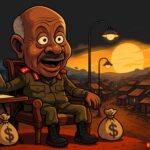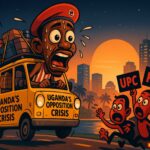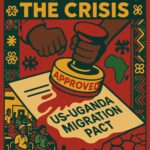An Analysis of the Uganda-China Defence Pact: Sovereignty, Security, and the Silent War on Dissent
In a closed-door meeting at the headquarters of China’s Central Military Commission, Uganda’s Chief of Defence Forces, General Muhoozi Kainerugaba, and China’s General Liu Zhenli cemented a new defence cooperation agreement. Officially framed as a move to modernise Uganda’s military and bolster regional security, the pact promises enhanced professional military education, joint exercises, and technology transfer. Yet, beneath the rhetoric of mutual benefit and “fewer political strings” lies a far grimmer reality. This in-depth analysis argues that the Uganda-China pact is not primarily about defence against external threats. Instead, it is a sophisticated strategy to fortify a system of internal control, deepen economic dependency through debt-fuelled infrastructure projects like the Karuma Dam, and equip the state with advanced tools to suppress dissent and protect extractive industries in the oil-rich Albertine Graben. By examining the pact’s focus on surveillance, the training of officers at China’s National Defence University, and its timing alongside the Beijing Xiangshan Forum, we reveal how this partnership serves the interests of ruling elites in both nations at the direct expense of popular sovereignty. Ultimately, this article explores how the greatest resistance to this top-down imposition of power is not found in another state capital, but in the ungovernable spirit of communities across Uganda building their own systems of mutual aid, solidarity, and common defence.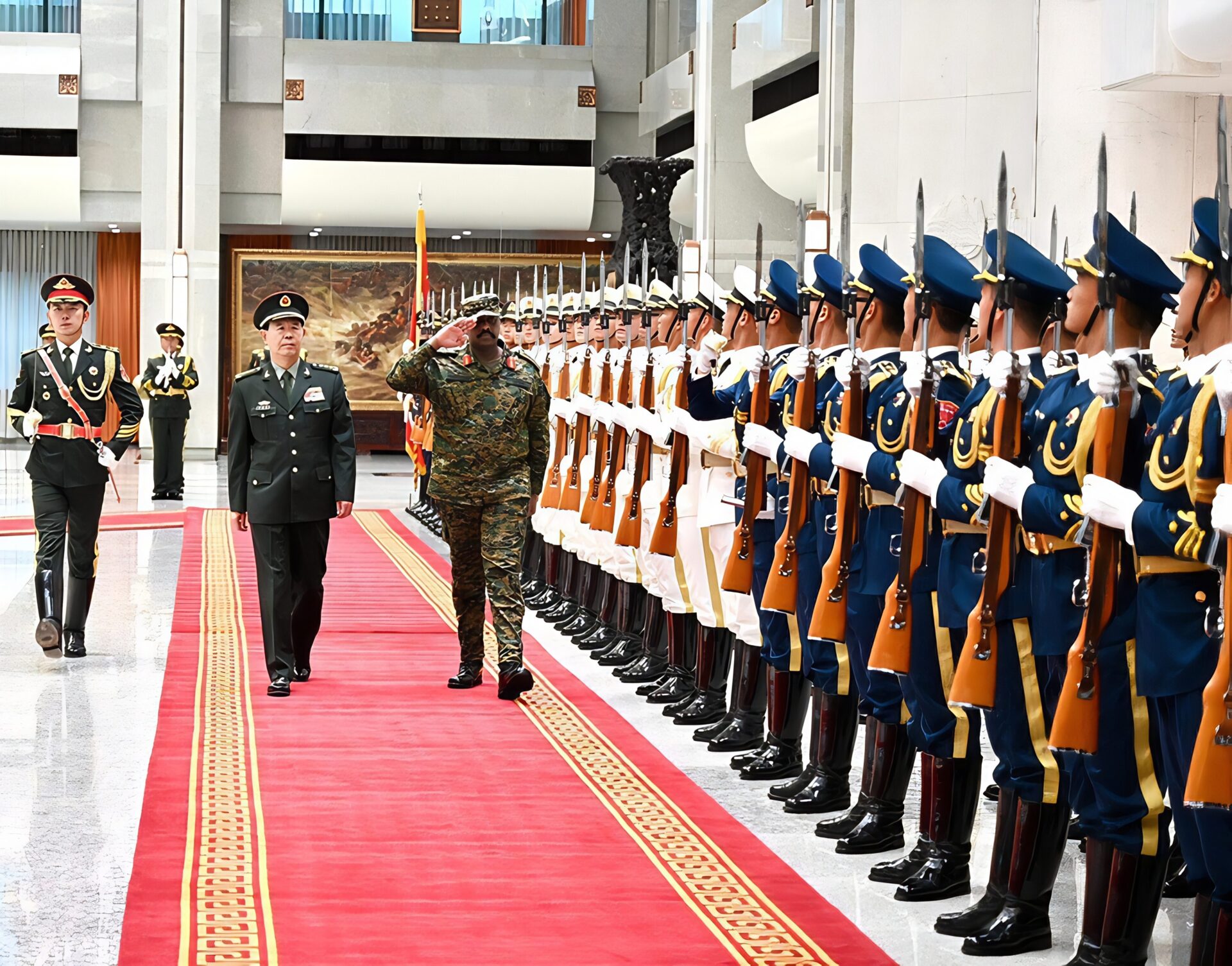
Twenty Points on the Real Meaning of the Pact
The Unseen Strings: The True Cost of a ‘No-Strings-Attached’ Deal
The notion that any agreement between a powerful state and a less powerful one can be free of conditions is a fable told to placate the public. It is the political equivalent of the age-old adage: “When two elephants fight, the grass suffers. But when they make peace, the grass is still trampled underfoot.” The recent defence pact between Uganda and China is a stark illustration of this. We are sold a story of a clean partnership, a meeting of equals with “fewer political strings.” But to believe this is to ignore the very nature of power itself. The strings are not absent; they are simply made of a different, more subtle thread—one of economic dependency and silent, enforced allegiance.
In the past, the mechanisms of influence from traditional Western partners were often blatant. Aid was tied to demands for specific political reforms, governance standards, or public declarations on international issues. This heavy-handedness allowed the state in Kampala to present itself as a victim of external bullying, a narrative that conveniently deflected from its own internal failures.
China’s approach is a masterclass in the art of indirect control. It understands that the most effective leash is not one held tightly and visibly, but one that is felt rather than seen. The strings they weave are not from political rope, but from economic silk.
The String of Debt-Fuelled Dependency: China’s role as Uganda’s primary infrastructure financier is not charity. The Expressways, the power dams, and the oil infrastructure are built with loans, not grants. This creates a debt obligation of monumental proportions. When a nation is deeply indebted to another, its sovereignty is inevitably compromised. Every dollar owed is a small veto on future policy. The lender acquires a silent stake in the borrower’s political and economic stability—as defined by the lender’s need for repayment. This isn’t a partnership of equals; it is a relationship between a creditor and a debtor, where the former holds immense, unspoken power.
The String of Elite Captivation: The “no-strings” narrative is most appealing to the ruling elite and the military top brass. For them, it is genuinely true. There are no demands for transparency, no inconvenient questions about human rights, and no lectures on democratic accountability. This is the deal’s most sinister string: it empowers the state against its own people. The state security apparatus receives training, equipment, and intelligence support without any accompanying pressure to be accountable to the citizenry. It reinforces the idea that the military’s primary allegiance is to the ruling structure that brokers these deals, not to the public it is supposedly meant to serve.
The String of Political Alignment: The expectation of allegiance is not written into a contract; it is woven into the fabric of the relationship. It is understood that in international forums, on matters critical to Beijing’s interests, Uganda’s voice will be one of support. This alignment is not achieved through a direct order but through the constant, looming presence of a benefactor who must be kept satisfied. It replaces the spectacle of public coercion with the quiet reality of private obligation. Kampala exchanges one master for another, but the outcome is the same: the foreign policy of a nation is guided by the need to please a powerful patron, not by the principles or needs of its people.
Ultimately, this illusion of neutrality serves only those at the top. For the market vendor in Wandegeya whose stall is cleared for a Chinese-funded road, for the farmer in Hoima displaced by an oil project, or for the artisan whose craft is undercut by imported goods, the strings are very real. They are the strings of displacement, of economic marginalisation, and of a state that grows ever more powerful and unaccountable, fortified by foreign backing.
 The truth is that all deals between states are deals between centres of power, designed to reinforce that power. They are never deals for the benefit of the landless, the voiceless, or the common person trying to live a life of dignity. The grass does not get a seat at the table when the elephants agree to stop fighting and start feasting together. It simply becomes the ground upon which their banquet is held. Recognising these unseen strings is the first step in rejecting the feast and demanding to sow our own seeds, on our own terms.
The truth is that all deals between states are deals between centres of power, designed to reinforce that power. They are never deals for the benefit of the landless, the voiceless, or the common person trying to live a life of dignity. The grass does not get a seat at the table when the elephants agree to stop fighting and start feasting together. It simply becomes the ground upon which their banquet is held. Recognising these unseen strings is the first step in rejecting the feast and demanding to sow our own seeds, on our own terms.The Guard is Paid by the Thief: How Arms Deals Fortify Power Against the People
A common adage warns us: “To a man with a hammer, every problem begins to look like a nail.” To a state accumulating artillery and patrol boats, every murmur of discontent, every organised demand for a fair share, begins to look like a threat to national security. The recent acquisition of military hardware under the Uganda-China pact is routinely dressed in the language of border defence and regional stability. But this is a deliberate misdirection. The primary function of this equipment is not to guard the porous borders of Karamoja from external armies; it is to guard the entrenched interests of the powerful from the internal, and entirely justified, demands of the populace.
This is the brutal reality of arming the status quo. The state, in its current form, is not a neutral referee overseeing society. It is a structure that, by its very design, exists to maintain a specific order—an order that benefits a minority who controls both economic and political power. The military and police are not public services; they are the protective detail for this arrangement.
The Geography of Control: Let us consider the hardware. Patrol boats are not for repelling a foreign naval invasion on Lake Victoria; such a threat is a fantasy. Their purpose is to project control over waterways and shorelines. They are to monitor and intimidate fishing communities who might protest against companies that pollute their waters or deplete their stocks. They are to secure the transport routes for oil extracted from the Albertine Graben, ensuring that the profits flow out smoothly, undisturbed by local communities who may rightly demand that this wealth first serves their needs for schools and clinics.
The Language of Violence: Artillery and armoured vehicles are grotesquely disproportionate tools for dealing with any conceivable external threat to Uganda’s sovereignty. Their overwhelming force has only one suitable battlefield: against an unarmed or lightly armed population. They are not instruments of defence but of domination. Their presence signals that the state’s ultimate argument is not dialogue, justice, or compromise, but brute, indiscriminate force. They are the exclamation mark at the end of every sentence the state speaks to its people when they assemble to be heard.
Protecting Assets, Not People: The pact speaks of protecting “major infrastructure and energy investments.” This is the clearest admission of its true purpose. The Karuma Dam, the oil pipelines, the vast commercial farms—these are the assets of the powerful, often built on dispossessed land and financed by foreign debt that the people will repay. The military hardware is not there to ensure the lights stay on in a rural health centre; it is there to ensure that the revenue streams flowing from these projects to the state and its partners are never interrupted by protests, strikes, or civil disobedience from those who have been marginalised by their development.
This is not security. It is a protection racket on a national scale. The state, in partnership with foreign capital, facilitates the acquisition of public wealth and common resources by a privileged few, and then uses its monopoly on violence—now upgraded with new technology—to shield this acquisition from any consequences.
True security would look profoundly different. It would mean communities having the power to manage their own resources and defend their own well-being. It would look like villagers in Kisoro having the means to guard their land against land grabbers, or market vendors in Kampala being able to organise their own collective security without fear of being dispersed by a state-sponsored militia. This kind of security is horizontal, built on mutual aid and solidarity. The security offered by the state is vertical, imposed from above, and its muzzle is always pointed downward.
The tragic irony is that the more a state arms itself against its people, the more it proves itself to be not their protector, but their adversary. Every new patrol boat, every piece of artillery, is not a tool for safeguarding the nation, but a bar for the cage being built around its people. The greatest threat to our collective well-being is not some external bogeyman; it is the very machinery that is being strengthened under the guise of defending us from it.
The Sharpened Axe: How Foreign Training Forges the Tools of Control
There is an old adage that warns, “Do not give a man a weapon without first knowing who he believes his enemy to be.” The ongoing programme that sees Ugandan military officers receive training at China’s National Defence University is a masterclass in the subtle art of shaping this perception. It is sold to the public as a simple exchange of expertise, a professional upgrading of our national defence capabilities. But to view it as merely a transfer of tactical knowledge is to miss the profound and dangerous ideological schooling that occurs. This is not neutral training; it is an advanced education in repression, designed to forge a military elite that sees its own people as the primary adversary to be managed.
 The curriculum in such institutions extends far beyond the mechanics of warfare. It is a holistic immersion into a doctrine where the line between the military, the state, and the ruling party is deliberately blurred into non-existence. The lesson being absorbed is that the primary role of the armed forces is not to defend the territorial integrity of the nation from external threats, but to ensure the political integrity of the ruling system from internal dissent.
The curriculum in such institutions extends far beyond the mechanics of warfare. It is a holistic immersion into a doctrine where the line between the military, the state, and the ruling party is deliberately blurred into non-existence. The lesson being absorbed is that the primary role of the armed forces is not to defend the territorial integrity of the nation from external threats, but to ensure the political integrity of the ruling system from internal dissent.This process operates on several levels:
The Ideology of the Vanguard: Officers are schooled in a model where a centralised, ‘enlightened’ authority—be it a party or a tightly-knit leadership circle—alone possesses the vision and right to guide the nation. Within this framework, the military is not a servant of the public will but the armed vanguard of this authority. Its duty is to protect the ruling project from any challenge, whether at the ballot box, in the streets, or in the court of public opinion. Popular demands for accountability, transparency, or a fair distribution of wealth are not legitimate political expressions; they are destabilising elements, ‘inconveniences’ to be neutralised with sophisticated crowd-control techniques learned under the guise of ‘peace support operations’.
The Cult of Professional Secrecy: This advanced training creates a separate class of individual—a professional officer corps that is psychologically and professionally distanced from the populace it is drawn from. They share a common language and a common mindset with their foreign tutors and fellow international cadets, a mindset grounded in the priorities of state security. This creates a profound disconnect. The soldier ceases to be a citizen in uniform and becomes an agent of the system, viewing the world through the lens of threat assessment and control. Their allegiance shifts from the abstract concept of their fellow citizens to the very tangible institution that provides their prestige, their salary, and their advanced, foreign-sanctioned skills.
The Normalisation of Surveillance: The training encompasses the full spectrum of modern control, including cyber warfare, intelligence gathering, and psychological operations. These skills are presented as tools for national defence, but their primary application is inward. They are used to monitoring activists, infiltrate community organisations, disrupt digital dissent, and spread disinformation. The Ugandan officer learns to see a farmers’ cooperative demanding better prices or a residents’ association protesting pollution not as fellow citizens with grievances, but as potential ‘targets’ for intelligence operations. This transforms community defence into a security threat and turns the military into an occupying force in its own country.
The ultimate goal of this exchange is to create a self-perpetuating system of control. The returning officer is not just a better tactician; they are a converted evangelist for a model of governance that is fundamentally hostile to popular sovereignty. They rise through the ranks, imparting this doctrine to their subordinates, ensuring that the entire security apparatus is oriented towards internal management and the preservation of the status quo.
 True security springs from the trust and cooperation between people and those who purport to protect them. But this foreign training systematically dismantles that possibility. It sharpens the axe of state power, not to clear a path for the people, but to hang over their heads, ensuring they remain compliant, monitored, and ultimately, powerless. The weapon is being sharpened, and the training ensures its edge is turned inwards, against the very people it is supposedly meant to serve.
True security springs from the trust and cooperation between people and those who purport to protect them. But this foreign training systematically dismantles that possibility. It sharpens the axe of state power, not to clear a path for the people, but to hang over their heads, ensuring they remain compliant, monitored, and ultimately, powerless. The weapon is being sharpened, and the training ensures its edge is turned inwards, against the very people it is supposedly meant to serve.The Wolf’s Argument: How ‘Security’ Becomes the Guard-Dog of Dispossession
There is a fable where a wolf justifies eating a lamb by accusing it of muddying his water upstream. The logic is perverse, invented, and designed solely to justify a predetermined act of violence. The framing of the Uganda-China defence pact—that military capacity must “keep pace with investments”—employs the very same twisted reasoning. It presents a sinister equation as if it were a neutral, even benevolent, principle of governance: that large-scale development must be protected, and that the thing it must be protected from is the people.
This is the security-development myth laid bare. It reveals that projects like the Karuma Dam or the Tilenga oil fields are not instruments of communal upliftment, but rather enterprises of extraction and control. They are not woven into the fabric of the community; they are imposed upon it. And like any foreign body, they trigger a reaction. The state’s solution is not to address the grievance, but to suppress the reaction. The military and police are not sent to ensure the community benefits, but to ensure the project proceeds, regardless of the cost to the community.
This pact formalises this suppression. It operates on several devastating levels:
The Creation of the ‘Threat’: The first step is to redefine the victim as the aggressor. The subsistence farmer whose land is compulsorily acquired for a pipeline right-of-way is not a person being robbed of their livelihood and heritage. In the language of this new security doctrine, they become a “security risk.” The community that holds a peaceful demonstration demanding a fair share of the jobs or compensation from a mega-dam is not exercising a fundamental right; they are “disrupting critical national infrastructure.” The language itself is a weapon, stripping people of their dignity and recasting their defence of their own lives as an act of sabotage against the nation.
Fortressing Development: These investments do not become part of the landscape; they militarise it. The oil well pad isn’t just a work site; it becomes a fortified enclave, ringed by fences, checkpoints, and armed guards hired to keep “unauthorised personnel”—a category that often includes the original landowners—out. The dam’s headquarters isn’t an office; it’s a garrison. This isn’t development; it’s an occupation. The message is clear: this project does not belong to you. It belongs to the state and its foreign partners, and you will be kept at bay by the very force your taxes purportedly pay for.
Siphoning Sovereignty: The ultimate perversion is that this “security” apparatus is deployed to protect the interests of foreign capital against the demands of the local population. Chinese loans fund the projects. Chinese companies often build and manage them. And now, through this pact, Chinese training and equipment are enhancing the ability of the Ugandan state to silence any resistance to them. It is a perfect, closed loop of dispossession: foreign capital provides the means for extraction, and foreign military expertise helps provide the muscle to enforce it. The sovereignty of the people over their land, their resources, and their destiny is surgically removed.
True, organic development needs no such protection. A community well, a collectively owned grain store, or a local school built by and for the people does not require barbed wire and patrol boats. It is guarded by the collective interest of everyone involved. It is only the model of imposed, top-down, exploitative development that requires a permanent armed guard.
 The tragic irony is that this “security” makes everyone profoundly insecure. It makes the community insecure in their homes and on their land. It makes the state insecure, as it must constantly fear the backlash from its own people. And it makes the future insecure, by ensuring that the nation’s wealth is harvested amidst conflict and resentment, rather than cultivated through cooperation and mutual benefit.
The tragic irony is that this “security” makes everyone profoundly insecure. It makes the community insecure in their homes and on their land. It makes the state insecure, as it must constantly fear the backlash from its own people. And it makes the future insecure, by ensuring that the nation’s wealth is harvested amidst conflict and resentment, rather than cultivated through cooperation and mutual benefit.The pact tells us a dam is so important, it must be protected from the people. A more truthful vision would insist that a development project is only important if it is protected by the people because it serves them first and foremost. Any project that requires guns to build is not a project worth having.
The Golden Chain: How Debt is Wielded as a Weapon of Subjugation
There is a timeless adage that cuts to the heart of power dynamics: “The borrower is a servant to the lender.” This simple, ancient truth lays bare the grim reality of Uganda’s deepening financial entanglement with China. To view these massive infrastructure loans as mere financial transactions is a dangerous naivety. They are not gifts or even simple investments; they are the deliberate forging of a golden chain, link by link, that binds the nation not in partnership, but in servitude. This debt is a weapon, and the new military pact is the shield that ensures it cannot be thrown off.
The mechanism of this weaponised debt is not blunt; it is sophisticated and devastatingly effective. It operates not through overt invasion, but through silent, strategic leverage that compromises a nation’s sovereignty from the inside out.
The Illusion of Choice and the Erosion of Sovereignty: When a nation is drowning in debt to a single, powerful creditor, its freedom to act in its own interest evaporates. Every major policy decision, every international alignment, must be passed through the filter of: “How will our creditor react?” This is not a hypothetical fear. Debt creates a silent veto power. A nation can no longer truly be said to be self-determining when a foreign power controls its economic lifeblood. Its sovereignty is not seized in a dramatic coup; it is quietly signed away in loan agreements, one concessional interest rate at a time.
The Asset-Based Trap: Much of this financing is not unsecured. It is tied to specific, high-value strategic assets—roads, dams, oil infrastructure. These are the arteries of a nation’s economy. Should a debtor nation ever struggle to meet its repayments, the creditor gains immense leverage over these assets. The threat, whether explicit or implied, is not just financial penalty but the potential loss of control over critical national infrastructure. This transforms an economic agreement into a form of strategic captivity. The nation must prioritise repayment above all else—above social spending, above public services, above the welfare of its people—to avoid this fate.
The Military Pact as the Enforcer: This is where the defence agreement reveals its true, sinister purpose. It is the final piece of the puzzle. The creditor state has a vital interest in ensuring the debtor government remains stable and, crucially, compliant. The military training, intelligence sharing, and equipment provided under the pact are designed to fortify the ruling establishment against any internal upheaval. This serves Beijing’s interests perfectly: it ensures a friendly regime remains in power to honour the debt agreements, and it provides the tools to quell any popular unrest that may arise from the austerity and dispossession often caused by the very projects the debt funded. The guns and patrol boats are not just for show; they are the guarantors of repayment. They protect the Karuma Dam from community protesters so it can continue generating revenue for the treasury, which is then funneled straight back to the lender.
This creates a vicious, inescapable cycle. The loan pays for a project that often displaces communities and centralises wealth. The military pact provides the means to crush the resulting dissent. The national treasury is then drained of its resources to service the debt for decades, leaving less for the education, healthcare, and genuine development that would actually benefit the populace.
True independence cannot be built on a foundation of debt. It is built on self-reliance, on cooperative endeavour, and on the direct control of communities over their own resources and labour. The current path does not lead to prosperity; it leads to a permanent state of indentureship, where the labour of an entire nation is dedicated to servicing the interests of a distant power. The roads and dams become monuments not to progress, but to a new, more sophisticated form of colonialism—one where the chains are financial, and the enforcers wear the uniforms of our own military. The gold is in the lender’s pocket, and the chain, heavy and unmistakable, is around our necks.
The Distant Fire: For Whom Does Uganda’s Soldier Really Bell the Cat?
An old adage questions the motivation behind a dangerous act: “Who will bell the cat?” It is a fable about courage, but also about who truly benefits from a risky endeavour. Uganda’s prolonged military mission in Somalia is universally praised on the world stage as a brave contribution to peace. But this official story, like all stories told by states, demands scrutiny. We must ask: for whom is the cat being belled? The people of Somalia, or the Ugandan military elite, who have found in that distant conflict a perfect training ground for control and a lucrative source of political power?
Beneath the banner of peacekeeping lies a more cynical reality. The mission has become an essential pillar in a system that strengthens the state’s apparatus of coercion at the expense of genuine, grassroots security for its own people.
This operates through several interconnected mechanisms:
The Economy of Intervention: The mission is a significant source of foreign currency for the army and the state. Troop contributions come with substantial financial reimbursements from international bodies like the African Union and the UN. This external funding creates a parallel economy within the military, making it less dependent on—and less accountable to—the national treasury and the Ugandan taxpayer. This financial independence further insulates the military elite from public scrutiny, allowing them to operate as a state within a state. The mission becomes a business venture, and peace is its commodity.
A Laboratory of Control: Somalia serves as a live-fire training ground where military tactics, command structures, and surveillance technologies are tested and refined in a real-world environment. The experience gained in urban combat, intelligence gathering, and pacifying hostile territories is not left at the border upon return. It is imported back home. The same strategies used to secure a neighbourhood in Mogadishu from Al-Shabaab can be, and are, applied to monitoring dissent in Kampala or quelling protests in Kasese. The mission professionalises not just an army, but a domestic security force highly experienced in imposing order by force.
The Currency of Legitimacy: Internationally, the mission buys immense political capital. It allows the Ugandan government to posture as a regional stabiliser, a responsible actor on the world stage. This reputation is then wielded as a shield against criticism of its domestic actions. How can a government lauded for bringing peace to Somalia be accused of fostering oppression at home? The glory earned abroad is used to whitewash transgressions against its own citizens, diverting attention from the fact that the soldier hailed as a hero in Mogadishu may return to be deployed against unarmed villagers in Karamoja or activists in the oil regions.
The Diversion of Resources and Focus: The immense financial and human cost of the Somali mission represents a colossal diversion of resources. It prioritises a military solution to a foreign conflict over addressing the profound, everyday insecurities faced by Ugandans: hunger, poverty, lack of medicine, and land disputes. The state demonstrates that it has the capacity to project power across continents, yet it claims it lacks the capacity to provide basic services and justice for its own people. This reveals its true priorities: the maintenance of its own military prestige and geopolitical standing over the well-being of the populace.
True security cannot be exported, nor can it be built on the foundations of foreign intervention. The security of a people is built from the ground up—through strong communities, shared responsibility, and mutual aid. It is the security of a full stomach, a justly settled dispute, and a community that can manage its own affairs without fear.
The Somali mission, for all its hailed bravery, ultimately serves to strengthen the very structures of top-down control that make people insecure in the first place. It is not the people of Uganda who are belling the cat; it is a military elite, and they are doing so using the people’s sons and daughters as pawns, sharpening their knives in a distant land only to bring them back home, ever more polished and deadly. The fire they are fighting in Somalia fuels a different kind of fire here at home.
The Locked Door: What the Elites Decide in Secret, the Public Pays For in Daylight
There is an adage that warns of the dangers of concentrated, unaccountable power: “The fish rots from the head down.” It speaks to a truth that when corruption and self-serving decisions are made at the very top, the decay inevitably spreads, poisoning everything below. The closed-door nature of the recent defence talks between Uganda and China is a pristine example of this rot setting in at the highest level. Behind those locked doors, the futures of millions were bartered and shaped without their knowledge, much less their consent. This secrecy is not a procedural formality; it is the very essence of how power operates to exclude the people, proving that the state does not trust its citizens—it merely rules them.
The refusal to conduct the people’s business in the light of day is a deliberate strategy with profound consequences:
The Deliberate Creation of Dependency: By shutting out public scrutiny, the state creates a forced dependency. It tells the citizenry, “You are incapable of understanding these complex matters. Leave it to us.” This is the language of a patron, not a servant. It infantilises the population, creating a system where people are conditioned to wait for instructions from above rather than organise solutions from within their own communities. This dependency is the bedrock of control. A people who believe they cannot govern themselves will forever be resigned to being governed—poorly and exploitatively—by others.
The Normalisation of Authoritarian Practice: Secrecy is a habit. When a state becomes accustomed to making monumental decisions in private, it ceases to see the public as a sovereign body to be answered to and begins to see it as a variable to be managed. The closed-door meeting is a rehearsal for authoritarianism. The deals on technology transfer and joint exercises are not just about hardware; they are about integrating systems of control. By hiding these discussions, the state avoids having to justify why it is building a more sophisticated apparatus for monitoring and suppression rather than one for genuine public service.
The Theft of Collective Destiny: The most fundamental theft is not of money or resources, but of agency. Decisions on military education will shape the ideology of the armed forces for a generation. Decisions on technology transfer will determine what tools of surveillance the state has at its disposal. These are choices that will determine whether a farmer in Amuru can defend his land or a market vendor in Arua can organise a cooperative without being labelled a security threat. By making these choices in secret, a tiny cabal of military and political leaders steals the right of the people to debate and determine their own collective destiny. They are drawing a map of our future, and we are not even allowed to look at it.
This closed-door policy stands in stark contrast to the way communities have historically organised for their own security and well-being. In the traditional Ludugo meeting, or under the shade of the community tree, matters of importance were debated in the open. Every voice, however faint, could be heard. Disputes were settled, resources allocated, and collective decisions made through a process that, however imperfect, was based on participation and transparency.
The modern state, with its closed-door deals, has inverted this principle. It has replaced open participation with secret negotiation. It has swapped collective consent for imposed diktat. The message is clear: you are not participants in this society; you are its subjects. Your role is not to deliberate, but to comply.
 The locked door in Beijing is a symbol. It does not just protect a conversation; it protects a system designed to keep power in the hands of the few. True security and genuine development can never flourish in the dark. They are plants that require the sunlight of public scrutiny and the nourishment of popular consent. Anything decided behind closed doors should be treated with the utmost suspicion, for it is there, away from the people’s gaze, that the chains that bind them are fitted and forged.
The locked door in Beijing is a symbol. It does not just protect a conversation; it protects a system designed to keep power in the hands of the few. True security and genuine development can never flourish in the dark. They are plants that require the sunlight of public scrutiny and the nourishment of popular consent. Anything decided behind closed doors should be treated with the utmost suspicion, for it is there, away from the people’s gaze, that the chains that bind them are fitted and forged.The Masters’ Feast: How a ‘Strategic Partnership’ is a Pact Against the People
A shrewd adage observes that “when the elephants dance, the mice must stay off the floor.” The recent fanfare surrounding the Uganda-China defence pact invites us to see a grand, mutually beneficial dance between two powerful nations. But this is a dangerous misreading. This is not a dance between nations; it is a meeting of minds between two distinct ruling classes, who recognise in each other a useful partner for a singular goal: to cement their own power, privilege, and immunity from the demands of their own populations. It is a partnership of elites, forged in the interests of elites, and paid for by everyone else.
This collaboration is not based on mutual cultural respect or a shared vision for human dignity. It is a transactional alliance between two systems of control, each providing the other with something invaluable to maintain their dominant position.
The Exchange of Legitimacy: The Ugandan political and military elite gains a powerful form of international legitimacy. The backing of a global superpower like China is a potent shield. It provides diplomatic cover, economic support, and a powerful narrative of South-South cooperation that can be used to deflect criticism and present the regime as a progressive, forward-looking partner on the world stage. This external validation is a currency they can spend domestically to undermine opposition and present themselves as the rightful architects of the nation’s future. In return, the Chinese Communist Party elite gains something equally valuable: a strategic foothold in a resource-rich region of Africa. It gains a reliable vote in international forums, a partner that will echo its positions, and a successful case study to promote its Belt and Road Initiative to other nations. It is a trade of political capital for geopolitical influence.
The Exchange of Tools and Tactics: The Ugandan elite receives the physical and intellectual tools of control: training, surveillance technology, arms, and a model of governance that seamlessly merges state, military, and party interests. This arsenal is not for national defence; it is for regime defence. It is used to monitor, intimidate, and silence domestic dissent, ensuring the current structure of power remains unchallenged. In return, the Chinese elite receives something it desperately needs: stability and guarantee of repayment. A compliant, militarily strong partner regime in Kampala ensures that the massive loans extended for infrastructure projects will be honoured. More importantly, it ensures that any local community resistance to those projects—which often involve Chinese companies and displace Ugandan citizens—can be efficiently quashed by a well-trained, domestically led force, saving Beijing the embarrassment and political cost of direct intervention.
The Reinforcement of a Global System of Control: Ultimately, this pact reinforces a global hierarchy that benefits elites at the expense of ordinary people everywhere. It proves that the primary loyalty of the powerful is not to their nation or its citizens, but to other powerful individuals and institutions across borders. The Ugandan factory worker and the Chinese factory worker have more in common with each other—in their struggle for fair wages, safe conditions, and a voice—than either has with the generals and party officials signing deals on their behalf. Yet, these pacts are designed to ensure these common people never recognise their shared interest. They are kept divided by nationalism, by propaganda, and by the very real violence that these agreements make possible.
This is the cruellest trick of all: the use of internationalism by the powerful to suppress internationalism among the powerless. They preach patriotism to the public while practicing a cynical, borderless collaboration of their own to protect their wealth and power.
True partnership would look radically different. It would be the unforced cooperation between Ugandan and Chinese farmers sharing agro-ecological techniques. It would be the solidarity between workers in Kampala and Shenzhen demanding better conditions. It would be the open exchange of ideas between communities resisting displacement from dams or special economic zones. This kind of solidarity is horizontal, people-to-people, and built on common interest.
 The pact signed in Beijing is the opposite. It is vertical, elite-to-elite, and built on the common interest of staying on top. It is not a bridge between two peoples, but a locked door, behind which two sets of masters agree on how best to manage their respective servants.
The pact signed in Beijing is the opposite. It is vertical, elite-to-elite, and built on the common interest of staying on top. It is not a bridge between two peoples, but a locked door, behind which two sets of masters agree on how best to manage their respective servants.The Weapon in the Wrapping: How ‘Technology Transfer’ Builds the Cage, Not the Community
There is an adage that warns of deception: “Beware the wolf in sheep’s clothing.” It speaks to the danger of a threat disguised as something harmless, even beneficial. The promise of “technology transfer” within the Uganda-China defence pact is precisely such a deception. It is packaged in the language of progress, modernisation, and partnership. But beneath this innocuous wrapping lies a far more sinister reality: this is not a transfer of technology for empowerment, but an importation of perfected tools for social control. It is not about building a more innovative Uganda; it is about constructing a more efficient prison, managed by a local warder but designed by a foreign architect.
This process is sold as a step towards self-reliance, but in truth, it is the opposite. It is the deliberate creation of a permanent dependency on systems of oppression, ensuring that the mechanisms for silencing dissent become ever more sophisticated, domestically operated, and inescapable.
The transfer operates on several destructive levels:
The Lie of ‘Neutral’ Technology: The first deception is the idea that technology is a neutral tool, its value determined solely by its user. This is a fantasy. The very design of a technology reveals its purpose. Systems for mass surveillance, facial recognition software, and digital monitoring platforms are not designed to help farmers track weather patterns or fishermen monitor stocks. They are conceived, engineered, and built for one primary function: to monitor, catalogue, and control human behaviour. Transferring this technology is not like importing a tractor; it is like importing a specially designed lock, and the only person who holds the key is the one who aims to keep you behind the door.
The Internalisation of Control: The most insidious aspect of this transfer is that it teaches the local elite to become their own jailers. By training Ugandan personnel to operate these complex systems, the pact ensures that repression can be decentralised and automated. It is no longer reliant on a foreign technician to run the software or interpret the data. This creates a self-sustaining system of control where the state security apparatus can independently identify “threats,” disrupt communications, and track movements with terrifying efficiency. The violence of the system becomes bureaucratic, digital, and seemingly impersonal, making it easier to administer and harder to challenge. It is the modernisation of tyranny.
The Targeting of Organic Opposition: The specific technologies being discussed—surveillance and crowd control—are not for use against a foreign army. They are for use against the population itself. Their purpose is to stifle the natural, organic opposition that arises when communities are marginalised. This includes:
The community organiser in the oil-rich Albertine region who uses a mobile phone to coordinate meetings about fair compensation. Their digital footprint can now be mapped, and their network identified.
The market vendors’ association in Mbale protesting new taxes that cripple their livelihoods. Their gatherings can be monitored by drones and their leaders targeted.
The student group in Gulu debating social justice. Their online activity can be swept up in digital surveillance nets.
This technology does not create security; it creates a climate of pervasive fear, where the cost of organising becomes impossibly high.
True technology for the people would look utterly different. It would be appropriate, decentralised, and aimed at solving actual problems: simple water purification systems managed by villages, open-source software for farmers to access market prices, or renewable energy micro-grids controlled by co-operatives. This technology empowers from the bottom up. It increases a community’s capacity for self-reliance and resilience.
The “technology transfer” on offer is the exact opposite. It is centralising, complex, and aimed at solving the ruling elite’s primary problem: how to maintain power in the face of popular discontent. It is not meant to solve problems, but to disappear the people who dare to point them out. They are not giving us tools to build our future; they are perfecting the tools to ensure we have no say in it. The wolf is not just at the door; it is teaching the guard dogs new tricks.
The Banquet of the Few: How Grand Trade Figures Mask a Feast of Exploitation
There is a piercing adage that has echoed through marketplaces and villages for generations: “Figures never lie, but liars often figure.” The proud announcement of a $1.2 billion bilateral trade volume between Uganda and China is a masterful example of this deceit. This impressive, monolithic number is presented as proof of mutual benefit and national progress. But a number, in itself, tells us nothing. It is a smokescreen, a grand total that deliberately obscures the brutal arithmetic of where this wealth actually flows. The reality is not one of shared prosperity, but of a brilliantly designed system where the benefits are siphoned upwards to a tiny, interconnected elite, while the vast majority are left with the crumbs—if they are not actively being robbed of their loaf.
This economic arrangement is not a rising tide that lifts all boats. It is a whirlpool that drains the wealth of the many into the coffers of the few. The mechanism operates with ruthless efficiency:
The Illusion of Ownership and the Reality of Extraction: When we ask, “Who owns the firms?” the answer reveals the entire scam. The lucrative contracts for importing Chinese manufactured goods, machinery, and consumer products are predominantly awarded to a handful of well-connected local conglomerates. These are not industrialists building local productive capacity; they are commission agents, the middlemen of extraction. Their profit is not earned by making anything of lasting value for Ugandan society, but simply by acting as the conduit for the outflow of local wealth and the inflow of foreign goods. Similarly, the Chinese firms operating in Uganda’s oil and infrastructure sectors are state-owned or massive corporations whose profits are repatriated to Beijing. The trade figure counts the gross movement of money, but it hides the net drainage of capital.
The Undercutting of Local Sovereignty: This flood of imported goods—often subsidised and mass-produced—acts as an economic weapon against local producers and artisans. The Ugandan textile worker, the metal fabricator in Kisenyi, the furniture maker in Jinja—they cannot compete with the cheap prices of imported alternatives. This is not healthy competition; it is economic suffocation. Local markets and industries, the very bedrock of community resilience and self-sufficiency, are systematically dismantled. What is hailed as “choice for the consumer” is in reality the destruction of communal economic sovereignty, creating a nation of consumers dependent on foreign supply chains rather than a nation of producers in control of their own sustenance.
The Exploitation of Labour: For the Ugandan worker within this system, the reality is one of exploitation. In the Chinese-owned factories and mines, reports of precarious contracts, low pay, unsafe conditions, and the suppression of worker solidarity are commonplace. The promise of jobs becomes a reality of servitude. The wealth generated by their labour does not circulate within their local community to build schools or clinics; it is added to that grand $1.2 billion figure before being whisked away to corporate headquarters thousands of miles away. They are not stakeholders in development; they are disposable cogs in a machine of extraction.
True, healthy trade would look nothing like this. It would be reciprocal and diverse, involving many small-scale actors. It would involve Ugandan coffee cooperatives trading directly with Chinese consumer unions, or artisan groups selling their crafts to independent retailers abroad. The wealth generated would be dispersed, landing in the pockets of countless farmers and craftspeople, who would then spend it in their local economies, creating a virtuous cycle of genuine, grassroots prosperity.
The current model is the opposite. It is centralised and hierarchical. It funnels wealth through a narrow pipeline that benefits the political class who grant the import licences, the local billionaire who owns the distribution franchise, and the foreign corporation that manufactures the goods. The staggering trade figure is not a measure of national wealth; it is a measure of how efficiently wealth is being transferred from the hands of the many into the vaults of the very few.
The banquet is indeed grand, but the invitation list is exceedingly short. The rest of us are not guests; we are merely the ones who grew the food, cooked the meal, and are now left to scrub the pots and pans while the masters dine.
The Poisoned Chalice: How Oil Wealth, Guarded by Foreign Guns, Corrupts Everything It Touches
There is an adage that speaks to a bitter paradox: “Water, water, everywhere, nor any drop to drink.” It describes the agony of being surrounded by an utterly unusable resource. For the people of Uganda, the nascent oil wealth in the Albertine Graben threatens to become a terrifying variation on this theme: “Oil, oil, everywhere, nor any benefit to claim.” History, from the Niger Delta to the Congo, teaches one brutal, unwavering lesson: when vast natural wealth is discovered in a land of great inequality, it does not bring prosperity; it brings a curse. It becomes a prize to be fought over by the powerful, and the state transforms from a supposed servant of the people into an armed guard for the corporate interests that wish to extract it. This defence pact with China is the final, crucial piece in ensuring this curse takes hold: it provides the explicit firepower to defend the prize from the very people to whom it rightfully belongs.
This process, the arming of the resource curse, unfolds with a grim predictability:
From Guardian to Gangster: The state sheds any remaining pretence of being a neutral guardian of the public good. Its primary purpose becomes the protection of the extraction infrastructure—the pipelines, the wellheads, the export terminals. This is not a passive role. It requires active, often violent, suppression of any dissent from the communities living on top of the resources. A farmer demanding fair compensation for lost land, a community worried about water pollution, or a group questioning the terms of the secretive deals—all are recast not as citizens with grievances, but as “economic saboteurs” and “security threats” to the nation’s interests. The state, armed with new tools and training, becomes the enforcement wing of the oil consortium.
The Centralisation of Violence and Wealth: The resource curse operates by creating a desperate convergence of interests between a national elite and foreign capital. The elite wants the revenue to maintain its power without having to answer to the people; the foreign corporation wants the profit. Both share a common need: stability and control. The military pact serves this need perfectly. It ensures that the force required to clear land, break strikes, and intimidate activists is locally sourced, professionally trained, and internationally backed. This allows for a “cleaner” form of exploitation; the Ugandan soldier does the dirty work, while the foreign partner provides the capital and enjoys the profits. The wealth is centralised into the hands of a few, and the violence required to protect that arrangement is centralised in the hands of the state.
The Death of Alternative Futures: The presence of armed, resource-backed authoritarianism kills all other possibilities for development. It strangles the economy, as investment and talent flock to the lucrative oil sector at the expense of agriculture, tourism, and local industry. It corrupts politics utterly, as control of the state becomes the only route to accessing the oil wealth. Most crucially, it destroys the possibility of true local control—the only known antidote to the resource curse. This does not mean the oil being nationalised by the state, which is just another form of centralised control. It means the communities most affected having a direct, decisive say in if, how, and when the resources beneath their feet are extracted, and how the benefits are shared. This is the path of dignity and self-determination. The defence pact is a declaration that this path will be blocked, by force if necessary.
The oil itself is not the curse. The curse is the system of power that surrounds it. It is the belief that a treasure belonging to the land and its people can be stolen by a privileged few and guarded by foreign-supplied guns.
A different future is possible. One where a community’s wealth is managed by the community itself, for its own development. Where decisions are made under the shade of the tree, not behind the barrel of a gun. Where security means protecting the people from harm, not protecting a pipeline from the people. The current path, sealed with this pact, leads away from that future. It leads towards a fortified, polluted, and deeply divided land, where the water is undrinkable, the air is unbreathable, and the wealth is a shimmering mirage, guarded by soldiers for masters we will never see. The chalice of oil is presented to us as a gift, but we must see it for what it is: poisoned, and meant for our lips, not theirs.
The Strangling of the Seed: How Mega-Projects Erode the Power of People to Govern Themselves
An adage offers a timeless piece of wisdom: “Give a man a fish, and you feed him for a day. Teach a man to fish, and you feed him for a lifetime.” The current model of development, exemplified by the Uganda-China pact and its focus on vast, centralised projects, inverts this logic with devastating consequences. It does not teach us to fish; it commandeers the entire lake, builds a large, foreign-owned processing plant on its shore, and then offers us jobs at a pittance to package the fish for export, making us dependent on its canteen for our daily meal. This is not development; it is the systematic dismantling of local autonomy and self-sufficiency, replacing it with a permanent state of dependency on a distant capital—first Kampala, and ultimately, Beijing.
This process of undermining local power is not a side effect; it is the central function of how top-down, mega-project development operates. It is a silent war against self-determination, fought with loan agreements and bulldozers instead of bullets.
The mechanism works on several fronts:
The Dismantling of the Local Economy: Large-scale infrastructure projects like expressways and dams are not integrated into the local economy; they overwhelm and destroy it. They bypass local suppliers, contractors, and artisans because the scale and specifications are designed for and often legally bound to large international firms. The local carpenter, the small-scale quarry owner, the regional engineering workshop—they are all rendered irrelevant. The economy that once consisted of a complex web of interdependent local businesses is replaced by a single, monolithic project that answers to a head office in another country. Wealth does not circulate within the community; it is extracted from it, sent up the chain, and a tiny fraction trickles back down in the form of temporary, unskilled labour wages.
The Cultivation of Purposeful Dependency: By destroying existing local systems, these projects create a vacuum that can only be filled by the state and its foreign partners. When a community’s water source is diverted for a dam, they become dependent on the state to provide alternative sources. When their farmland is taken, they become dependent on purchased food, and thus on cash from the very projects that displaced them. This dependency is a form of control. A community that relies on a distant power for its basic needs cannot afford to challenge that power. Its energy is diverted from self-governance to daily survival, making it compliant and manageable.
The Erosion of Knowledge and Confidence: Perhaps the most profound damage is the psychological and cultural erosion. When decisions about water, energy, transport, and land are made by experts and officials in faraway boardrooms, the local community’s knowledge—built over generations—is rendered obsolete. The confidence to manage their own affairs, to solve their own problems through collective action and innovation, withers and dies. People begin to believe the lie that they are incapable of governing themselves, that they need an external saviour to organise their lives for them. This is the ultimate victory for centralised power: when the people themselves cannot conceive of an alternative to their own subjugation.
True development would do the opposite. It would be decentralised and aimed at strengthening the capacity of communities to be self-reliant. It would look like:
Supporting village-level renewable energy co-operatives instead of prioritising a massive, centralised national grid.
Investing in local food storage and processing facilities to prevent post-harvest losses, rather than prioritising export-oriented industrial farms.
Granting communities real control over their forests, fisheries, and land, allowing them to manage these resources sustainably for their own benefit.
This is the path of dignity and genuine security. The current model, supercharged by foreign debt and now protected by a new military pact, is a path to servitude. It doesn’t just build roads and dams; it builds a cage, convincing us as it does so that we never knew how to fly in the first place. It strangles the seed of self-reliance before it can ever break the surface, ensuring the tree of power continues to cast its deep, stifling shadow over all beneath it.
The Broken Ladder: How the High Command Serves Its Own Ascent, Not Our Common Ground
A sharp adage dissects the nature of misplaced loyalty: “He who pays the piper calls the tune.” It reminds us that allegiance follows benefit. The recent defence pact between Uganda and China is a stark performance of this ancient truth. For the high-ranking military officers brokering these deals, this is not primarily about national security; it is a calculated career move. It is a path to personal prestige, wealth, and advanced training that deliberately reorients their interests away from the soil of Nakaseke and the bustling alleys of Kisekka Market, and towards the powerful corridors of Beijing and the guarded boardrooms of Kampala. Their ascent up the ladder of personal privilege is paid for by nailing that ladder firmly to a foreign wall, leaving the rest of us stranded below.
 This is a process of conscious corruption, where the guardians of the nation are transformed into agents of a system that serves only itself. It operates through a series of destructive incentives:
This is a process of conscious corruption, where the guardians of the nation are transformed into agents of a system that serves only itself. It operates through a series of destructive incentives:The Currency of Prestige and Patronage: For a general, an invitation to Beijing for high-level talks is not a diplomatic chore; it is a mark of immense prestige. It signifies entry into an elite international club of power brokers. This prestige is then converted into domestic political capital, strengthening their position within the internal hierarchy of the state. The deals they sign become symbols of their influence and access, valuable commodities in the internal patronage networks that define the regime. They are no longer judged by their service to the populace, but by their ability to secure lucrative partnerships with powerful foreign actors.
The Economy of Personal Enrichment: Large defence deals are historically fertile ground for kickbacks, commissions, and opaque procurement processes. The selection of which foreign company supplies equipment, who gets the contracts for maintenance, and which local intermediaries are used—all these decisions represent potential rivers of personal wealth for those in a position to direct the flow. This creates a perverse incentive: a general’s personal fortune becomes directly tied to the volume of deals struck with foreign powers, not to the genuine security needs of the nation. Their prosperity is literally invested in the continuation and expansion of these partnerships.
The Psychology of Foreign Alignment: Advanced training at foreign military academies is a powerful tool of psychological reprogramming. An officer who spends years being schooled in the doctrines and strategies of a foreign power inevitably begins to see the world through that lens. Their professional camaraderie is forged with their international classmates and tutors. Their sense of what constitutes “advanced” and “effective” is defined by their foreign benefactors. Gradually, their professional identity becomes fused with the interests of the global military elite they have joined. The concerns of a subsistence farmer in Nakaseke become distant, primitive, and irrelevant to their new world of geopolitical strategy and high-tech weaponry.
This creates a devastating divergence of interest. The trader in Kisekka Market needs security from theft and extortion. The farmer in Nakaseke needs security of land tenure and a fair price for their crops. This is the security of everyday life.
But for the general whose career is hitched to these foreign deals, “security” means something entirely different. It means the security of the regime that empowers them. It means the security of the economic pipelines that enrich them. It means maintaining the stability required for their foreign partners to continue investing. The farmer and the trader, if they dare to protest or organise, become obstacles to this kind of “security”—problems to be managed with the very tools acquired through the pact.
True security is rooted in place and community. It is the knowledge that your neighbour has your back. It is the confidence that you can feed your family from your own land and sell your goods in a fair market. The generals, in their pursuit of personal career advancement, are building an entirely different kind of security—a fortress for the elite, paid for with foreign gold, and guarded against the very people they were once supposed to serve. They have stopped listening to the tune of the people and now dance only to the rhythm of the foreign piper.
The New Feudal Order: Uganda’s Place in a Global Web of Control
An old adage, often whispered in resistance, warns of the cyclical nature of power: “The emperor has no clothes.” It is a tale about the collective realisation that authority is often a grand illusion, sustained only by our unwillingness to speak the plain truth. The Uganda-China defence pact must be recognised for what it truly is: not a unique bilateral agreement, but a single thread in a vast, global web being woven to create a new feudal order. This is not a break from the old models of domination pioneered by the West; it is merely the emergence of a new consortium of power, operating by a slightly different playbook to achieve the same ancient goal: the concentration of wealth and the suppression of popular sovereignty.
Uganda is not a special case. It is a test case. It is one node in a wider strategy where economic capture is cemented by military integration, creating a network of powerful, interdependent states that answer to each other rather than to their own people.
This global pattern operates with a chilling coherence:
The Architecture of Debt-Trap Diplomacy: The model is now clear. A powerful state identifies a resource-rich or strategically located nation. It offers massive, tempting loans for infrastructure projects, often at concessional rates, knowing full well the debtor nation will struggle to repay. This creates a cycle of dependency and leverage. The debt itself becomes the primary tool of control, far more effective than the threat of outright invasion. When a nation is drowning in debt, its policy choices are no longer its own. This is not a theory; it is a pattern observed from Sri Lanka to Zambia, where assets have been surrendered, or profound political concessions made under financial duress.
The Military-Industrial-Complex Goes Global: The defence pact is the natural, and necessary, evolution of this economic strategy. What good is holding a nation’s debt if a popular uprising or a change of government threatens to repudiate those agreements? The military partnership solves this problem. By training, equipping, and integrating the host nation’s officer corps, the creditor state ensures the local power structure has a vested interest in maintaining the status quo. It creates a Praetorian Guard for foreign capital. The Ugandan general’s career is tied to Beijing’s favour, just as the Chinese state’s returns are protected by the Ugandan military’s willingness to suppress dissent. This is a globalisation of the military-industrial complex, where the interests of a foreign arms industry and a local military elite become perfectly aligned against the interests of the populace.
The Illusion of a Multipolar World: This system is often sold as a positive alternative to Western hegemony—a “multipolar world.” This is a dangerous misnomer. For the farmer in Apac or the factory worker in Jinja, it does not matter whether the boot pressing down on their neck is stamped “Made in the USA” or “Made in China.” The result is the same. Replacing one distant master with another is not liberation; it is merely a change of management in the same oppressive system. This new network does not dismantle hierarchies; it simply creates new, competing hierarchies, each demanding allegiance and offering the same bitter deal: obedience in exchange for the crumbs from the master’s table.
This is the stark reality. The world is not dividing into a new era of free and self-determining nations. It is consolidating into a few rival spheres of influence, each with its own centre of power—be it Washington, Beijing, Moscow, or Brussels—and its own periphery of dependent states. Uganda is being integrated into one of these spheres.
True freedom from this global system cannot be found by switching allegiance from one empire to another. It can only be found by rejecting the very logic of empires altogether. It means building power from the ground up, through communities that manage their own resources, through unions that control their own labour, and through regions that cooperate freely as equals, not as master and servant. The goal is not to have a Ugandan flag on the board of a new global power bloc, but to dissolve all such blocs in favour of a world of genuine, uncoerced cooperation. The emperor, whether he wears a Western suit or an Eastern one, still has no clothes. Our power lies in our collective willingness to stop applauding and to state the obvious truth.
The Manufactured Dilemma: How a False Choice Stifles the Path to True Self-Reliance
There is an adage that describes the tyranny of limited options: “To a man with only a hammer, every problem looks like a nail.” The Ugandan state, in its promotion of the China partnership, is performing a similar trick of perception. It presents the nation with a desperate, binary choice: align with the traditional Western powers or embrace their new Eastern counterparts. This is a manufactured dilemma, a political sleight of hand designed to smother the imagination before it can even begin to conceive of a third path. By framing these two giants as the only games in town, the state systematically erodes the very idea of a future built from the ground up, one based on mutual aid and self-determination, free from the corrosive entanglements of all foreign powers.
This erosion of alternatives is not an accident; it is a core strategy of maintaining control. It operates by making the radical seem impossible and the oppressive seem inevitable.
The Colonisation of the Imagination: The state and its media apparatus constantly reinforce the narrative that “there is no alternative” (often dubbed TINA). This mantra is a psychological weapon. By endlessly debating the relative merits of American versus Chinese influence, they consume all the oxygen in the room of public discourse. There is no space left to discuss how communities in the Rwenzoris could manage their own resources, or how market vendors in Kampala could form a federation to control their own supply chains. These ideas are not just ignored; they are rendered literally unthinkable. The imagination, the most powerful tool for liberation, is colonised and shackled to the choice between two masters.
The Demonisation of Self-Sufficiency: Pursuing a path of genuine independence—relying on local knowledge, regional trade between African communities, and community-owned cooperatives—is framed as naive, backwards, or even dangerous. It is labelled “isolationism” or a threat to “modernisation.” This is a deliberate mischaracterisation. Self-sufficiency is not about living in a primitive bubble; it is about controlling the terms of engagement with the world. It is about a community in Gulu deciding if it wants a foreign partner for a project, and on what terms, rather than having a project imposed upon it by a distant capital. The state, acting as the middleman for foreign interests, has a vested interest in portraying this dignified self-reliance as a fantasy.
The System’s Self-Preservation: Embracing a decentralised model of organisation based on mutual aid is an existential threat to the current centralised state model. If the people of Kigezi can effectively manage their own water systems and resolve their disputes through community councils, what need do they have for a vast, top-down bureaucracy in Kampala? If farmers in Teso can create their own storage and distribution networks, bypassing exploitative middlemen, they undermine the economic power of the elite. The state’s promotion of the China-West dichotomy is ultimately about self-preservation. It ensures that power, resources, and decision-making continue to flow through its hands, making it an indispensable—if predatory—gatekeeper.
There is a vibrant, living history of this “third path” all across Uganda. It is the tradition of the Ludugo meeting, where communities gathered to solve problems collectively. It is the practice of Bulungi Bwansi, where people come together to work on a project for the common good. It is the informal economies and solidarity networks that keep people alive when the state fails them.
This is not a utopian dream. It is a practical, proven way of organising society that puts human dignity and community welfare above profit and power. The path forward is not to choose a new foreign benefactor, but to consciously and courageously reject the entire concept of benefactors. It is to build our own tables, grow our own food, and make our own decisions, cooperating freely with whom we choose, not whom we are forced to obey. The hammer and the nail are not our only tools. We have our hands, our minds, and each other. The greatest act of defiance is to start building something they said could never exist.
The Theatre of Power: What the Xiangshan Forum Truly Celebrated
There is an adage that speaks to the performance of authority: “A crown is merely a hat that lets the rain in.” It reminds us that the symbols and stages of power are often distractions from its true, vulnerable nature. The signing of the Uganda-China defence pact at the Beijing Xiangshan Forum was not a neutral choice of venue. It was a deeply symbolic act, a piece of political theatre designed to send a clear message to the world and to the Ugandan people. By choosing this major security conference, the Ugandan state was not just signing a deal; it was taking a bow on a world stage that prizes one thing above all others: the security of the state against the freedom of its people. It was a public declaration of alignment with a bloc that values order above liberty and control above compassion.
 This symbolism is not an empty gesture. It is a clear signal of intent and ideology, with profound consequences for how security is defined and enforced.
This symbolism is not an empty gesture. It is a clear signal of intent and ideology, with profound consequences for how security is defined and enforced.The Forum as a Ritual of Allegiance: The Xiangshan Forum is more than a meeting; it is a ritual where a certain doctrine of security is reinforced and celebrated. It is a gathering where generals and defence ministers speak the language of “national security,” “stability,” and “non-interference”—terms that consistently translate into the right of a state to manage its population without external criticism and, crucially, without internal challenge. By signing the pact there, Uganda’s generals were participating in this ritual. They were not merely attendees; they were acolytes, signalling their commitment to a global fraternity that defines strength not by the well-being of citizens, but by the state’s ability to suppress dissent and maintain control.
Redefining Security: From the Person to the State: The core ideology celebrated at such forums is the inversion of true security. Human security means a child being safe from disease, a farmer having secure tenure over their land, a woman being free from violence, and a trader being able to earn a living without paying bribes. State security, as defined in Beijing and embraced by the signatories in Kampala, means the opposite: the ability of the ruling apparatus to remain in power, to protect its economic interests, and to use surveillance and force to ensure no one disrupts this project. The pact signed at the Forum is a tool for the latter. It provides the technology and training to monitor the activist, to disrupt the protest, and to silence the journalist—all under the guise of maintaining “stability.”
The Performance of “Order”: The “order” prized at the Xiangshan Forum is not the organic harmony of a community that manages its own affairs. It is the sterile, imposed quiet of the cemetery. It is the absence of noise, not the presence of justice. This is an order where a mega-dam project proceeds without a hitch because community opposition has been intimidated into silence. It is an order where the state’s budget is spent on advanced surveillance systems instead of neonatal clinics. By aligning with this concept, the Ugandan state makes its priorities terrifyingly clear: it would rather have a population that is passive and controlled than one that is healthy, engaged, and free to determine its own destiny.
True security is not delivered from a podium at an international conference. It is built from the ground up, in the daily acts of solidarity and mutual care that define resilient communities. It is the security of a neighbourhood watch that knows its own streets, not a surveillance camera controlled from an army barracks. It is the confidence that comes from controlling your own food, your own water, and your own community decisions.
The symbolism of the Xiangshan Forum is a warning. It tells us that the state views its own people as the primary threat to its existence. The guns, the training, and the technology are not being procured to guard against an external invader. They are being procured to guard the powerful from the legitimate demands of the people. They have chosen their side in a silent war, not between nations, but between the governors and the governed. The crown they so proudly wear on the world stage is indeed just a hat—and it is designed to shield their eyes from the storm of injustice they have helped to create, a storm that is already beginning to rain down on everyone beneath them.
The Garrison Mentality: How Professional Soldiers Are Taught to See Citizens as Subjects
There is an adage that warns of the danger of a single, narrow skill set: “If the only tool you have is a hammer, you tend to see every problem as a nail.” The professional military education being offered to Ugandan officers under this pact is the process of providing them with a very specific, sophisticated set of hammers. This is not simply training; it is a profound social and psychological transformation. It creates a separate, professionalised class of individuals whose expertise is the art of coercion, systematically divorcing them from the communities they purport to serve. In doing so, it severs the very idea of “security” from the people’s innate ability to keep themselves safe through solidarity and collective action, placing it instead in the hands of a distant, unaccountable elite.
This process of creating a separate class is a deliberate strategy to undermine community autonomy and centralise the monopoly of force. It functions through several interconnected mechanisms:
The Psychology of Separation: Advanced military training, especially in a foreign context, does not just teach tactics; it builds a new identity. Officers are immersed in a culture of hierarchy, discipline, and secrecy. Their bonds of camaraderie are forged with their fellow officers and their international tutors, not with the farmers or traders in their home districts. They begin to speak a specialised language of threat assessment, operational security, and kinetic response. This world-view inevitably frames the civilian population as an external variable—a mass to be controlled, protected, or managed, but never as equals participating in their own defence. The community becomes the object of security, not its author.
The Redefinition of “Expertise”: This system deliberately devalues local, organic knowledge of security. The wisdom of a community that has developed its own methods for resolving disputes, guarding crops, or supporting vulnerable members is dismissed as primitive and unofficial. It is replaced with the imported “expertise” of crowd control, digital surveillance, and intelligence gathering. This creates a dependency cycle: the state argues that security is too complex for ordinary people to understand, requiring instead the professional, trained specialist. This justifies the expansion of the security apparatus and the disarming of community-led initiatives, making people feel helpless and reliant on the very forces that are designed to control them.
The Institutionalisation of Distrust: A professional military class, by its very design, is institutionally distrustful of popular organising. A community organising a peaceful march is not seen as citizens exercising a right; it is a “public order” situation to be managed. A trade union negotiating for workers’ rights is not a legitimate social partner; it is a potential source of “instability.” The hammer of coercion sees the nail of dissent everywhere. This mentality is antithetical to the concept of community self-reliance, which is based on trust, mutual aid, and collective decision-making. The professional soldier is trained to see such self-organising not as a healthy society, but as a challenge to the state’s monopoly on power.
True security is the opposite of this. It is the confidence that comes from knowing your neighbour has your back. It is the safety found in a well-lit street, where everyone feels a sense of ownership and responsibility. It is the resilience of a community that can feed itself, care for its sick, and settle its disputes without calling in an armed external force.
The professionalisation of the military is the process of stamping out this confidence and replacing it with a state-sanctioned fear. It tells people they are incapable of managing their own affairs and that their safety must be outsourced to a specialist class that answers to commanders, not to communities. It is the ultimate expression of a state that views its own people as a problem to be solved, rather than partners in a shared project of building a common life. They are given hammers, and they are taught that we are all nails. Our only response is to build a world that cannot be taken apart with a hammer.
The Puppeteer’s Promise: How ‘Non-Interference’ is the Ultimate Form of Control
There is an adage that exposes the hypocrisy of those who wield power indirectly: “The hand that feeds you, controls you.” This simple, unassailable truth demolishes the central myth behind China’s foreign policy doctrine: the principle of “non-interference.” This notion is not a respectful adherence to sovereignty; it is a convenient and deeply cynical fiction. It is the puppeteer claiming they are not controlling the marionette because their hands are not visibly pulling the strings, all the while designing the puppet, owning the stage, and writing the script. Providing the funds, technology, and weapons that determine which forces in a society hold power is not non-interference; it is the most profound and lasting interference possible.
This doctrine is a masterstroke of political deception, allowing a foreign power to reshape a nation from the inside out while maintaining a veneer of respectful partnership. Its mechanics are as follows:
Interference Through Empowerment: To claim you are not interfering while actively choosing which domestic actor to empower is a logical absurdity. By funnelling billions of dollars in infrastructure loans and military hardware exclusively to the central state apparatus, China is not being neutral. It is making a deliberate choice to strengthen the central government—and specifically, its coercive arms—against all other centres of power in society: local communities, trade unions, civil society groups, and regional authorities. This is not non-interference; it is picking a winner in Uganda’s internal power dynamics and ensuring it wins by arming it to the teeth. It is the ultimate intervention in a nation’s political evolution.
Shaping the Battlefield of Ideas: The doctrine of non-interference is itself an ideological weapon. It is designed to be appealing to regimes that wish to operate without scrutiny of their human rights records or democratic deficits. By promoting this principle, China actively interferes in the global discourse on governance, lending legitimacy to authoritarianism and undermining international norms that seek to hold power accountable. It tells the Ugandan state that its behaviour towards its own people is nobody else’s business, effectively providing diplomatic cover for repression. This is interference in the most fundamental sense: it shapes the very rules of what is considered acceptable conduct for a state, lowering the bar for oppression everywhere.
The Creation of Structural Dependency: The most potent form of interference is not a shouted order; it is a created reality where no order needs to be given. By making the Ugandan state dependent on Chinese loans for its budget and Chinese hardware for its security, Beijing ensures that Kampala’s policy choices automatically align with Chinese interests. The Ugandan government does not need to be told what to do; it simply understands that its survival depends on keeping its benefactor happy. This is the most insidious form of control—it is internalised. The interference is so deeply baked into the structure of power that it becomes invisible. The puppet has accepted the strings as its own nervous system.
True respect for sovereignty would look entirely different. It would mean engaging with the full spectrum of Ugandan society, not just the ruling elite. It would mean investments that strengthen local cooperatives and community-owned enterprises, not just deals that enrich conglomerates and state coffers. It would mean a relationship built on people-to-people exchange, not general-to-general handshakes.
China’s “non-interference” is a doctrine designed for the powerful to deny their power and for the controlled to deny their captivity. The hand that feeds the state its money and its weapons is the same hand that strangles the potential for genuine self-determination from below. They are not absent from our internal affairs; they have become the central architect of them. They have built the cage and called it cooperation, and they demand we thank them for the privilege of being locked inside.
The Labelling of the Resistance: How the State Manufactures Enemies to Silence Dissent
There is an adage that speaks to the power of propaganda: “Give a dog a bad name and hang him.” It captures the ancient tactic of destroying a thing by first distorting its reputation. The enhanced military and surveillance capabilities acquired through the Uganda-China pact provide the state with a more sophisticated toolkit to do precisely this. With these new tools, activists, land defenders, and trade unionists are no longer merely citizens with grievances; they can be systematically re-categorised, tracked, and portrayed as “security threats,” “economic saboteurs,” or “unpatriotic elements.” This is the ultimate silencing mechanism: framing resistance to state-corporate projects not as a democratic right, but as a form of treason to be neutralised.
This process is not a minor side effect; it is a central function of strengthening the state’s coercive apparatus. It moves dissent from the realm of political debate into the realm of national security, where the rules of engagement are brutal, and the state holds all the cards.
The mechanism works through a calculated series of steps:
The Weaponisation of Vocabulary: The first step is linguistic. The state appropriates and twists the language of security. A community organising a peaceful sit-in to protect its ancestral land from a destructive mining project is not “defending its heritage”; it is “obstructing critical national investment.” A trade union striking for a living wage at a Chinese-owned factory is not “fighting for workers’ rights”; it is “destabilising production and harming the economy.” This semantic shift is incredibly powerful. It justifies the use of force against citizens by placing their actions outside the bounds of legitimate protest and into the category of criminal or even terrorist activity. The dog is given a bad name.
The Technological Enablement of Persecution: This is where the new capabilities come in. Enhanced surveillance technology allows the state to identify and monitor leaders of resistance with terrifying efficiency. Their networks can be mapped, their communications intercepted, and their movements tracked. This intelligence is not gathered to understand their grievances, but to dismantle their efforts. The activist can be pre-emptively arrested on trumped-up charges of “inciting violence” before a planned demonstration. The land defender can be financially crippled by having their accounts frozen under allegations of “funding illicit activities.” The tools provided by the pact make this persecution precise, pervasive, and seemingly “legal.”
The Cultivation of Public Complicity: By consistently framing dissent as a security threat, the state seeks to turn the public against the dissenter. The person fighting for their land is portrayed as an enemy of progress, standing in the way of jobs and development. The whistleblower exposing corruption in a mega-project is painted as a traitor, damaging the nation’s reputation with international partners. This strategy aims to isolate the resister, stripping them of public sympathy and making it easier for the state to move against them without sparking wider outrage. It makes the population complicit in its own silencing, as people learn to fear association with anyone labelled a “troublemaker” by the authorities.
This is the opposite of security. It is the creation of an architecture of fear designed to paralyse society. True security exists when a farmer can defend their land without fear of disappearance, when a worker can organise without fear of retribution, and when a community can question power without being labelled an enemy of the state.
 The silencing of dissent is not a sign of a state’s strength; it is the deepest proof of its weakness and insecurity. A powerful state, confident in its relationship with its people, has no need to silence them. It is only the brittle, illegitimate state that must resort to branding its own citizens as threats. The new capabilities from this pact are not shields to protect the people; they are needles intended to pop the balloons of dissent before they can ever rise into the sky. They are not building a safer nation; they are building a quieter one, where the only sound allowed is the echo of the state’s own voice.
The silencing of dissent is not a sign of a state’s strength; it is the deepest proof of its weakness and insecurity. A powerful state, confident in its relationship with its people, has no need to silence them. It is only the brittle, illegitimate state that must resort to branding its own citizens as threats. The new capabilities from this pact are not shields to protect the people; they are needles intended to pop the balloons of dissent before they can ever rise into the sky. They are not building a safer nation; they are building a quieter one, where the only sound allowed is the echo of the state’s own voice.The Unarmed Truth: Why Our Greatest Power Lies in Collective Refusal
There is an adage that has guided the shrewd and the subjugated for centuries: “The lion is most afraid of the hunter’s net, not his spear.” It speaks to a profound truth about power: that its greatest weakness is not a confrontation with a stronger force, but its entanglement in the refusal of the consent upon which it ultimately depends. The Uganda-China defence pact, for all its tanks and technology, is terrifyingly vulnerable to this very principle. The greatest threat to this entire arrangement is not a rival army or a sanctions package from the West. It is the organised, collective refusal of the Ugandan people to be pawns in this game. It is the quiet, unstoppable power of communities building their own systems of defence, support, and economy outside the control of generals and billionaires.
This is not a call for violent uprising; it is an argument for radical self-possession. It is the understanding that true power does not flow downward from the state, but upward from the collective will of the people. When that will is consciously withdrawn, the state and its foreign backers are left ruling over a hollow shell.
This power of refusal manifests in tangible, world-changing ways:
The Withdrawal of Legitimacy: The state’s power is a performance that requires our audience. Its authority is not inherent; it is granted, moment by moment, by our collective acquiescence. When a community in the oil-rich regions collectively decides to ignore the directives of a distant ministry and instead holds its own meetings under the tree to decide the fate of its land, it withdraws legitimacy. When market vendors in a Kampala arcade create their own internal justice system to resolve disputes, bypassing the corrupt police, they are refusing to recognise the state’s monopoly on justice. This mass, quiet withdrawal of consent is a net that can entangle the lion of state power, rendering its roars impotent.
The Construction of Parallel Systems: The most potent form of resistance is not protest, but construction. It is the active building of the world we want to see, here and now, in the shell of the old. This means:
Creating Community Defence: Training local, accountable peacekeeping teams whose mandate comes from the community, not the barracks, to provide real security against crime and land grabs without calling on the state’s violent, partisan machinery.
Building Mutual Support: Forming networks of mutual aid where communities collectively ensure food security through shared granaries, care for their sick through health cooperatives, and educate their children through community-led programmes, making them less dependent on a state that serves them poorly.
Forging a Solidarity Economy: Developing local trading networks and producer cooperatives that keep wealth circulating within communities, bypassing the extractive middlemen and multinational corporations that the state partnership enables.
The Rediscovery of Our Own Power: For generations, we have been taught that we are helpless—that we need a strongman to protect us, a foreign saviour to develop us, and a general to secure us. This is the great lie. The power to solve our problems has always resided in our ability to come together, to pool our resources, and to act in collective interest. This is the power that built the villages and cultures of Uganda, long before there was a Republic. Reclaiming this power is not a step backwards; it is the only step forward that leads to genuine freedom. It is the realisation that the hunter’s net is woven from our own threads of cooperation, and we can choose to weave it for our own protection, or we can simply let it fall away.
The generals and their foreign patrons understand this truth far better than we do. Their entire project is designed to shatter our ability to cooperate, to make us see each other as competitors for scraps rather than as allies in a common struggle. Their fear is not that we will rise up in arms, but that we will simply turn away from them and towards each other.
The pact is not a sign of their strength; it is a testament to their fear of our potential power. Our response need not be a shouted curse. It can be a quiet, collective deep breath, followed by the simple, world-shattering act of turning to our neighbour and asking: “What can we build together?” That question, asked and answered by millions, is the net that will ultimately ensnare every spear and tank they possess. For a system built on our obedience, the most terrifying sound is not a protest chant, but the deafening silence of our collective refusal to play their game any longer.
The Fortress and the Field: A Final Reckoning
An adage offers a timeless insight into the psychology of power: “Those who build fortresses are those who live in fear.” The handshake in Beijing, the closed-door pacts, and the imported tools of control are all acts of fortress-building. They are the desperate constructions of a system that knows, deep down, that its legitimacy is brittle, its wealth is stolen, and its authority is a performance that requires constant, armed enforcement. It is a world ordered from the top down, predicated on a single, stark division: a powerful few behind walls of their own making, and the rest of us outside.
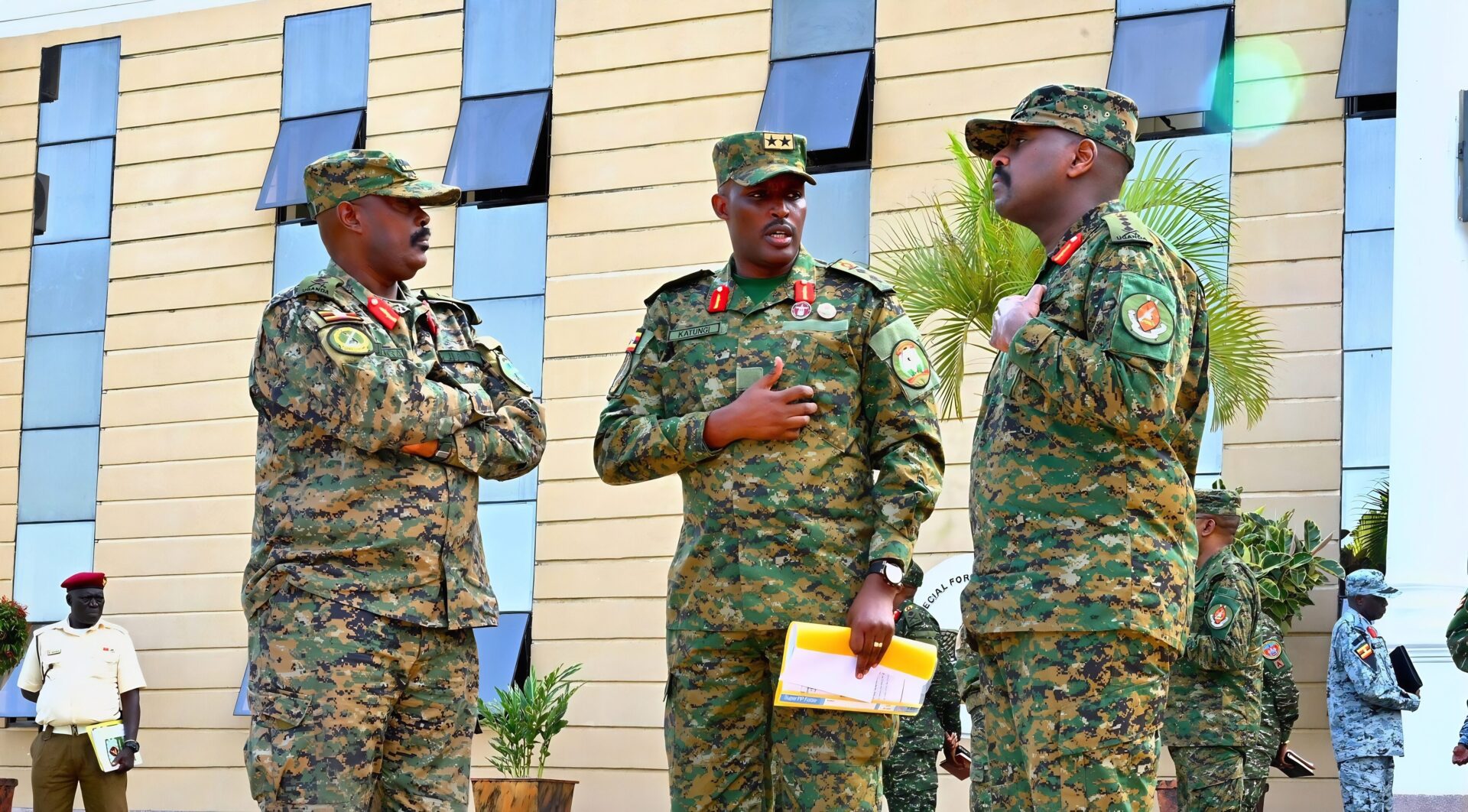 But a fortress mentality is a confession of weakness. It admits that the rulers fear the ruled. That the planner fears the person whose life he plans. That the armed soldier fears the unarmed spirit of a community that knows its own worth.
But a fortress mentality is a confession of weakness. It admits that the rulers fear the ruled. That the planner fears the person whose life he plans. That the armed soldier fears the unarmed spirit of a community that knows its own worth.
This fear is well-founded. For all its formidable power, the state and its foreign partners cannot ultimately control the one thing that matters most: the ungovernable human capacity for mutual care and collective self-defence. The real cooperation that secures a society does not happen in the mirrored halls of a conference centre. It happens in the field, in the market, and in the neighbourhood. It is the quiet, relentless work of:
Solidarity: The practice of seeing your neighbour’s struggle as your own. It is the market vendor who watches another’s stall so they can use the toilet, creating a simple, unarmed security based on trust, not threat.
Mutual Aid: The direct sharing of resources to meet human needs, from a community grain store that guards against hunger to a savings group that allows a member to pay a medical bill, creating an economy that serves people, not capital.
Common Defence: The courage of a village gathering to physically stand between a neighbour’s land and the bulldozers sent by a corrupt official, embodying a deeply personal security and profoundly legitimate because it springs from the soil itself.
This is the true, unbreakable defence pact. It is not written on paper; it is woven into the fabric of daily life. It does not fly a flag because its allegiance is to human dignity itself. It is the reason the fortress-builders are afraid. They can import all the surveillance technology in the world, but they cannot monitor every act of kindness. They can sign a hundred military agreements, but they cannot stop people from sharing water with a thirsty protester. They can preach the doctrine of state security, but they cannot extinguish the ancient understanding that our greatest security is each other.
The handshake in Beijing symbolises a world of walls. But below the wall, a seed of defiance is always growing. It is nurtured by the simple, radical belief that we are not subjects to be managed, but the authors of our own lives. And history shows us that when enough seeds break through the concrete, even the mightiest fortress cannot stand.

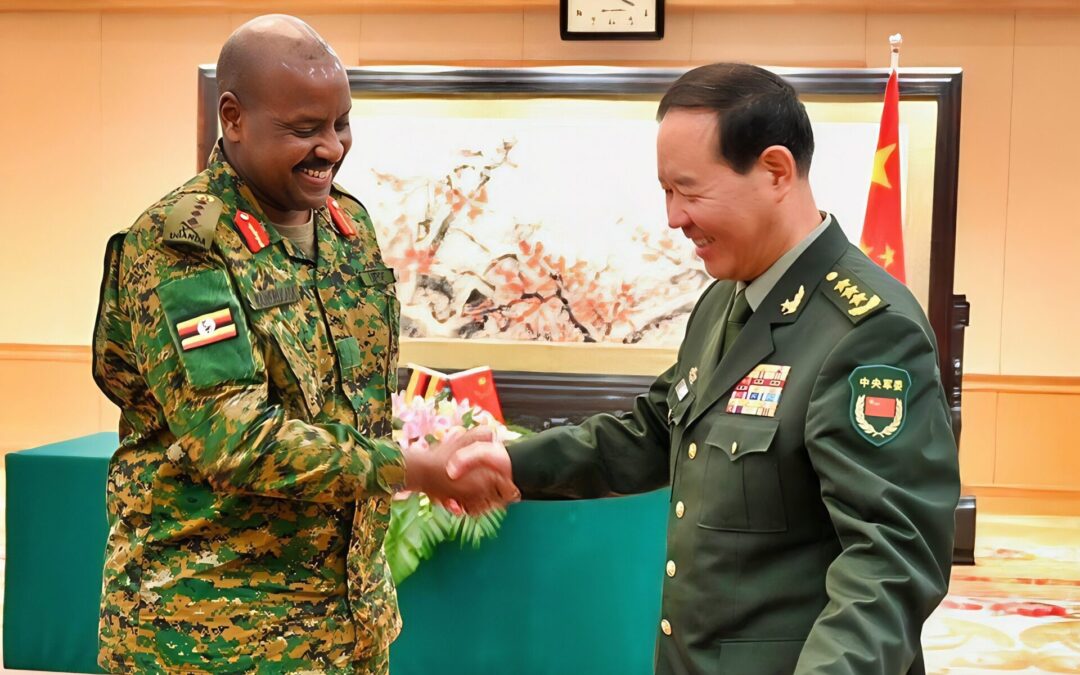
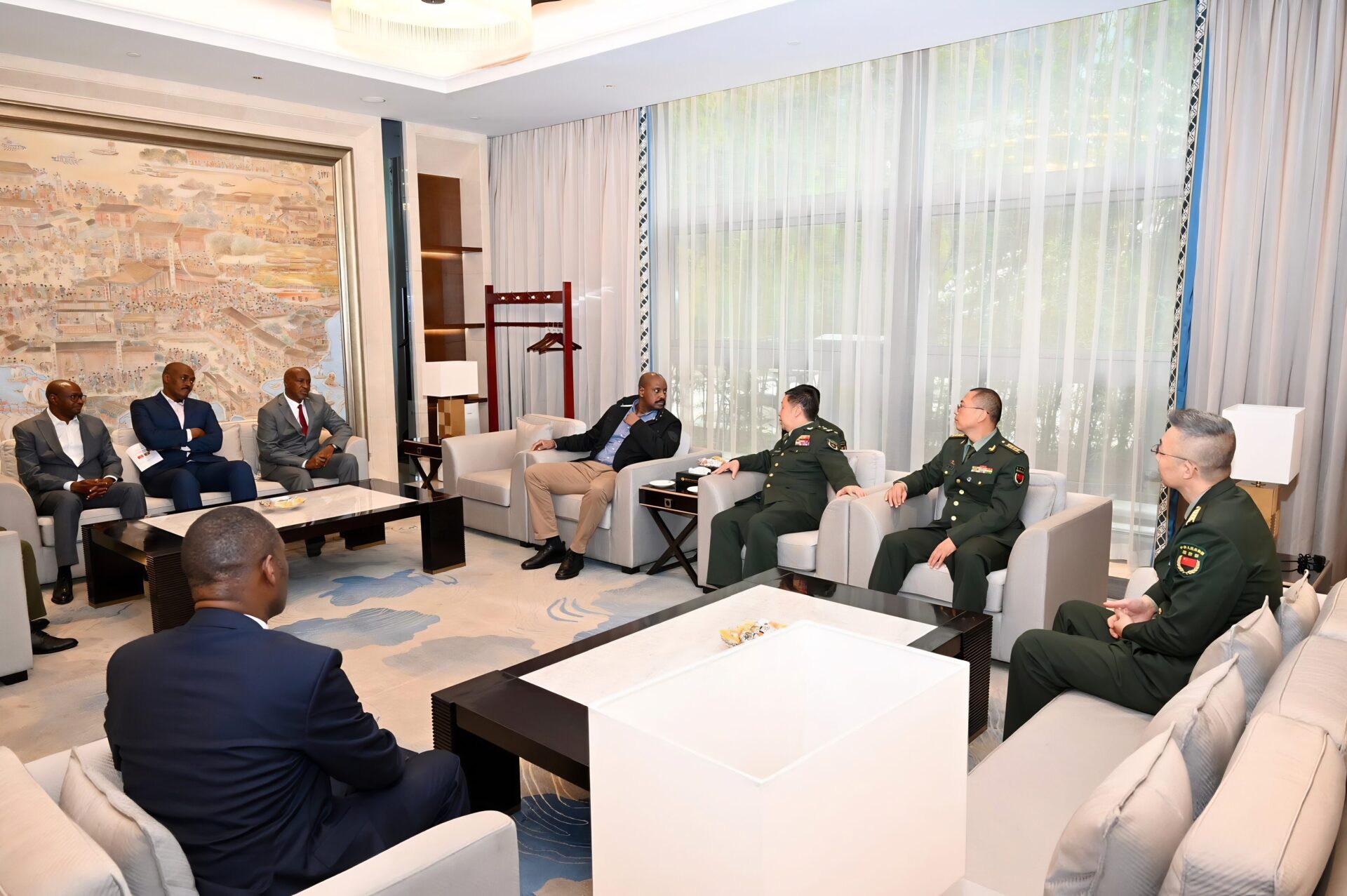 The truth is that all deals between states are deals between centres of power, designed to reinforce that power. They are never deals for the benefit of the landless, the voiceless, or the common person trying to live a life of dignity. The grass does not get a seat at the table when the elephants agree to stop fighting and start feasting together. It simply becomes the ground upon which their banquet is held. Recognising these unseen strings is the first step in rejecting the feast and demanding to sow our own seeds, on our own terms.
The truth is that all deals between states are deals between centres of power, designed to reinforce that power. They are never deals for the benefit of the landless, the voiceless, or the common person trying to live a life of dignity. The grass does not get a seat at the table when the elephants agree to stop fighting and start feasting together. It simply becomes the ground upon which their banquet is held. Recognising these unseen strings is the first step in rejecting the feast and demanding to sow our own seeds, on our own terms.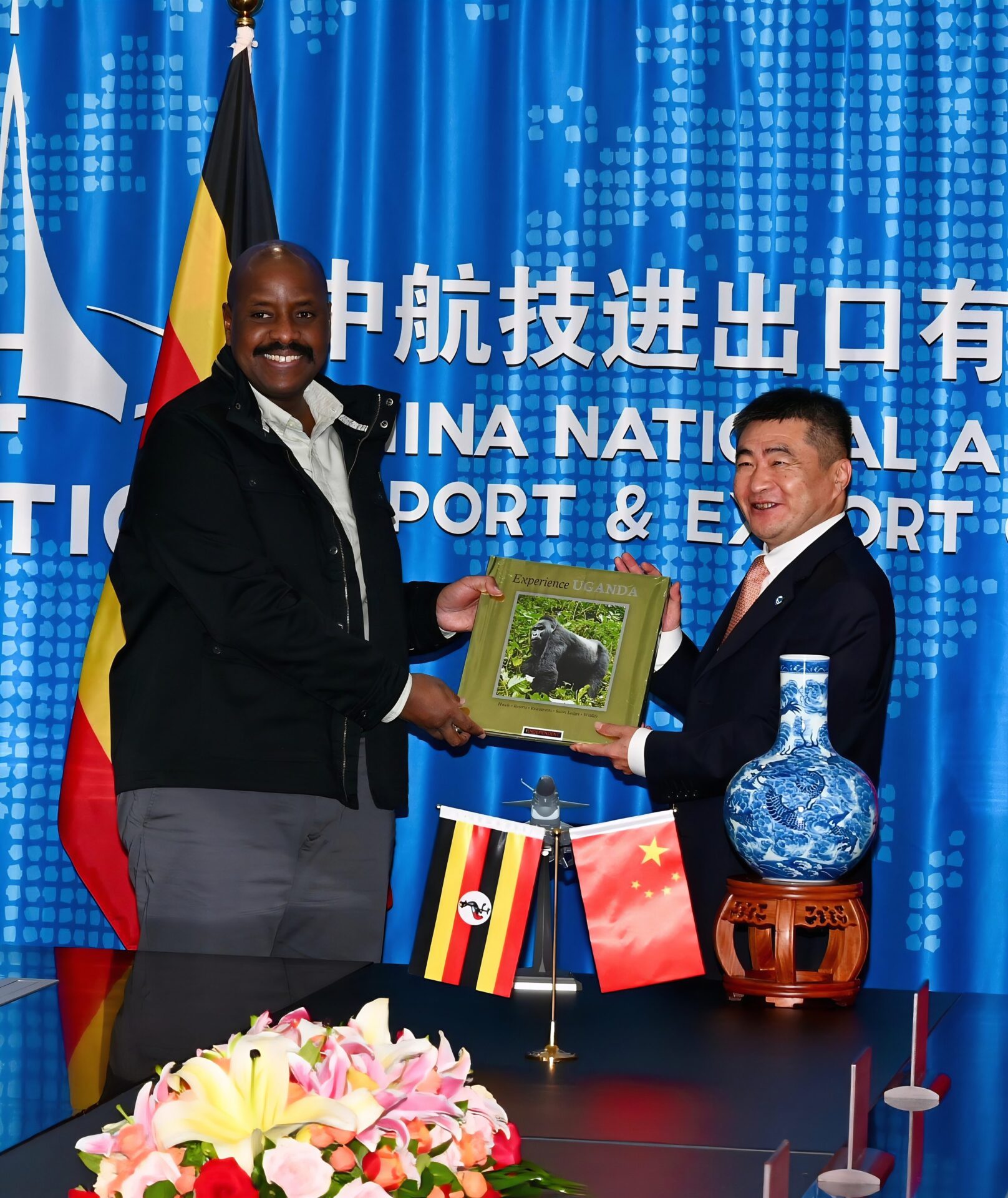 The curriculum in such institutions extends far beyond the mechanics of warfare. It is a holistic immersion into a doctrine where the line between the military, the state, and the ruling party is deliberately blurred into non-existence. The lesson being absorbed is that the primary role of the armed forces is not to defend the territorial integrity of the nation from external threats, but to ensure the political integrity of the ruling system from internal dissent.
The curriculum in such institutions extends far beyond the mechanics of warfare. It is a holistic immersion into a doctrine where the line between the military, the state, and the ruling party is deliberately blurred into non-existence. The lesson being absorbed is that the primary role of the armed forces is not to defend the territorial integrity of the nation from external threats, but to ensure the political integrity of the ruling system from internal dissent.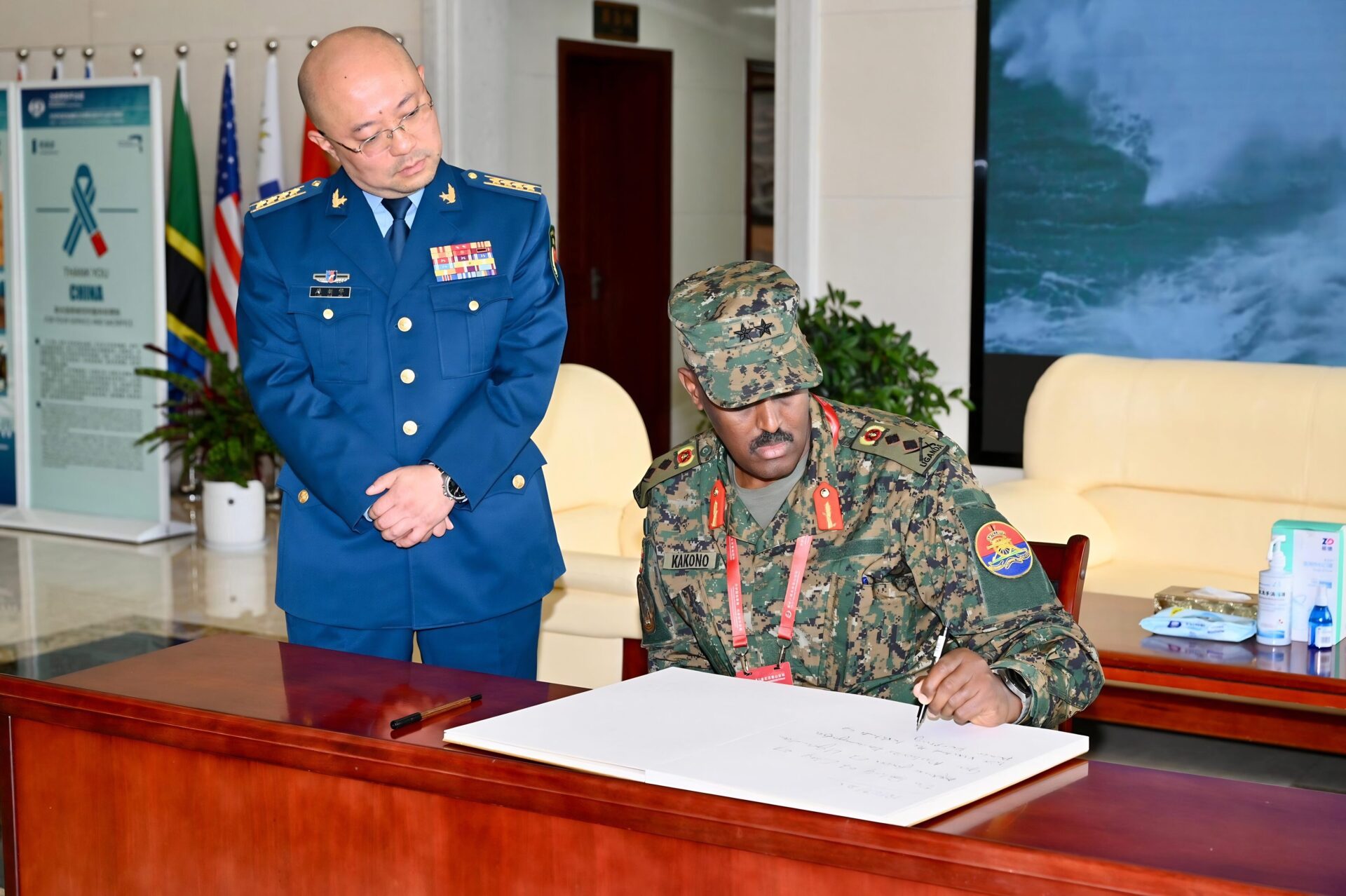 True security springs from the trust and cooperation between people and those who purport to protect them. But this foreign training systematically dismantles that possibility. It sharpens the axe of state power, not to clear a path for the people, but to hang over their heads, ensuring they remain compliant, monitored, and ultimately, powerless. The weapon is being sharpened, and the training ensures its edge is turned inwards, against the very people it is supposedly meant to serve.
True security springs from the trust and cooperation between people and those who purport to protect them. But this foreign training systematically dismantles that possibility. It sharpens the axe of state power, not to clear a path for the people, but to hang over their heads, ensuring they remain compliant, monitored, and ultimately, powerless. The weapon is being sharpened, and the training ensures its edge is turned inwards, against the very people it is supposedly meant to serve.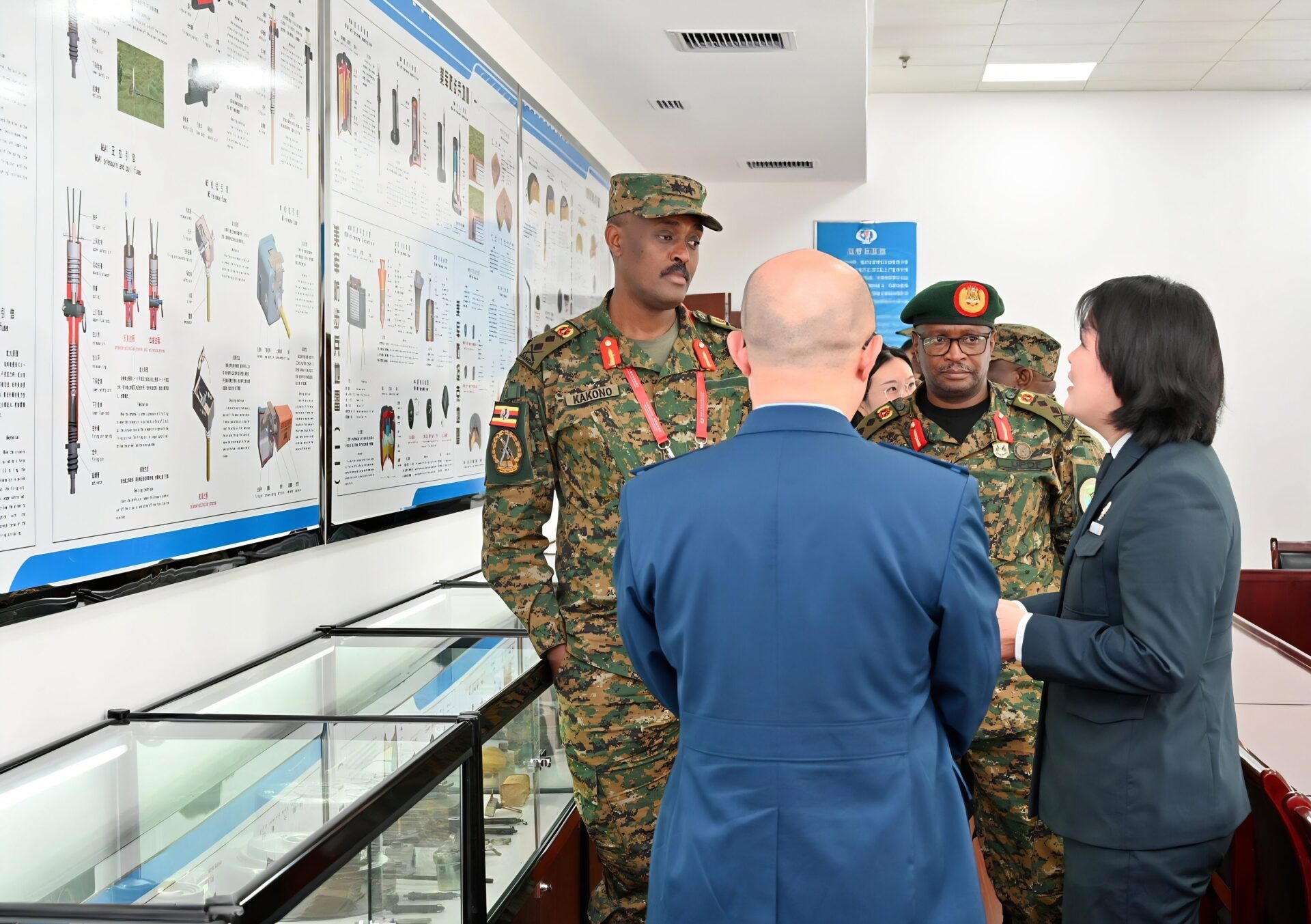 The tragic irony is that this “security” makes everyone profoundly insecure. It makes the community insecure in their homes and on their land. It makes the state insecure, as it must constantly fear the backlash from its own people. And it makes the future insecure, by ensuring that the nation’s wealth is harvested amidst conflict and resentment, rather than cultivated through cooperation and mutual benefit.
The tragic irony is that this “security” makes everyone profoundly insecure. It makes the community insecure in their homes and on their land. It makes the state insecure, as it must constantly fear the backlash from its own people. And it makes the future insecure, by ensuring that the nation’s wealth is harvested amidst conflict and resentment, rather than cultivated through cooperation and mutual benefit.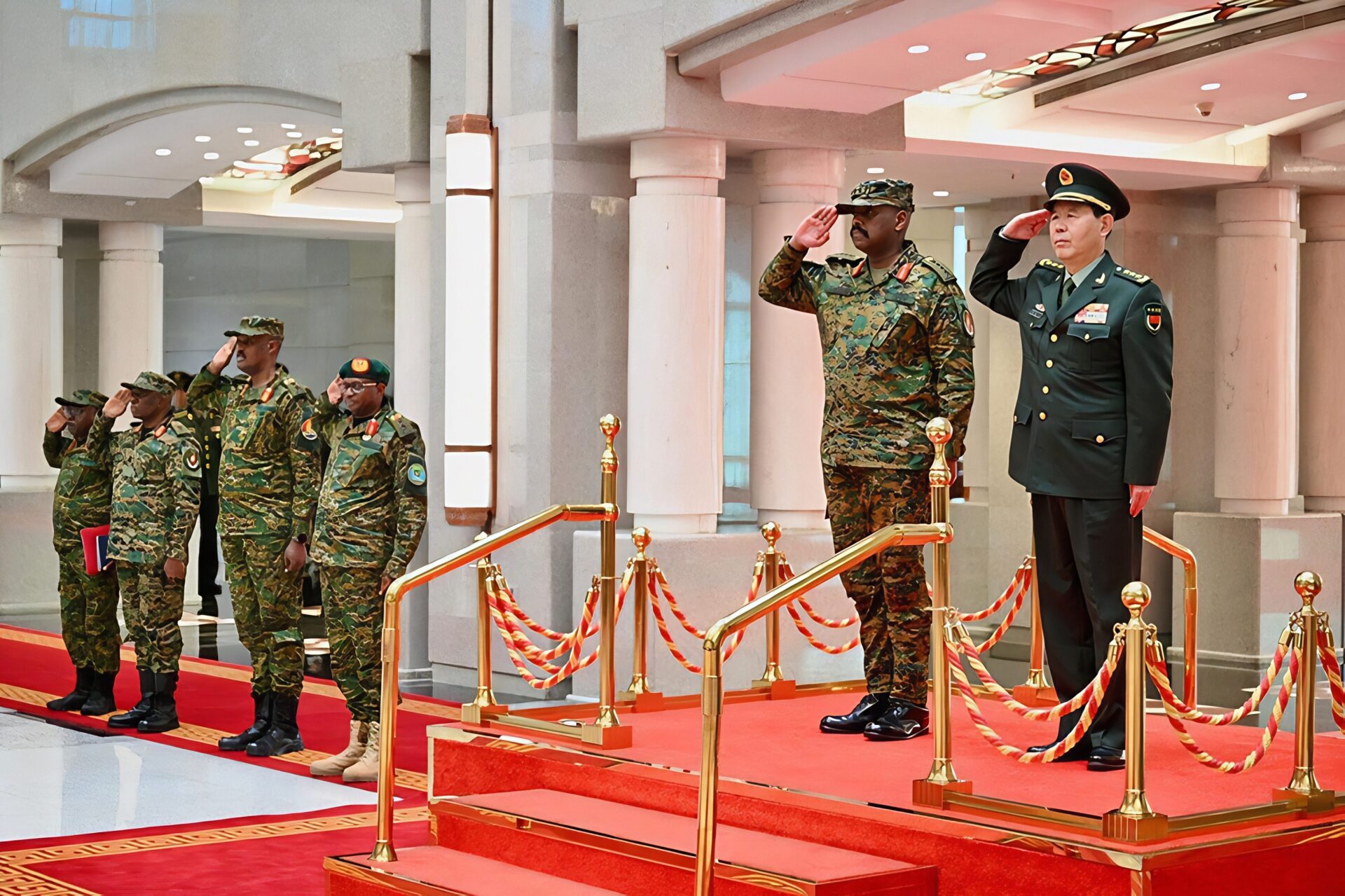 The locked door in Beijing is a symbol. It does not just protect a conversation; it protects a system designed to keep power in the hands of the few. True security and genuine development can never flourish in the dark. They are plants that require the sunlight of public scrutiny and the nourishment of popular consent. Anything decided behind closed doors should be treated with the utmost suspicion, for it is there, away from the people’s gaze, that the chains that bind them are fitted and forged.
The locked door in Beijing is a symbol. It does not just protect a conversation; it protects a system designed to keep power in the hands of the few. True security and genuine development can never flourish in the dark. They are plants that require the sunlight of public scrutiny and the nourishment of popular consent. Anything decided behind closed doors should be treated with the utmost suspicion, for it is there, away from the people’s gaze, that the chains that bind them are fitted and forged.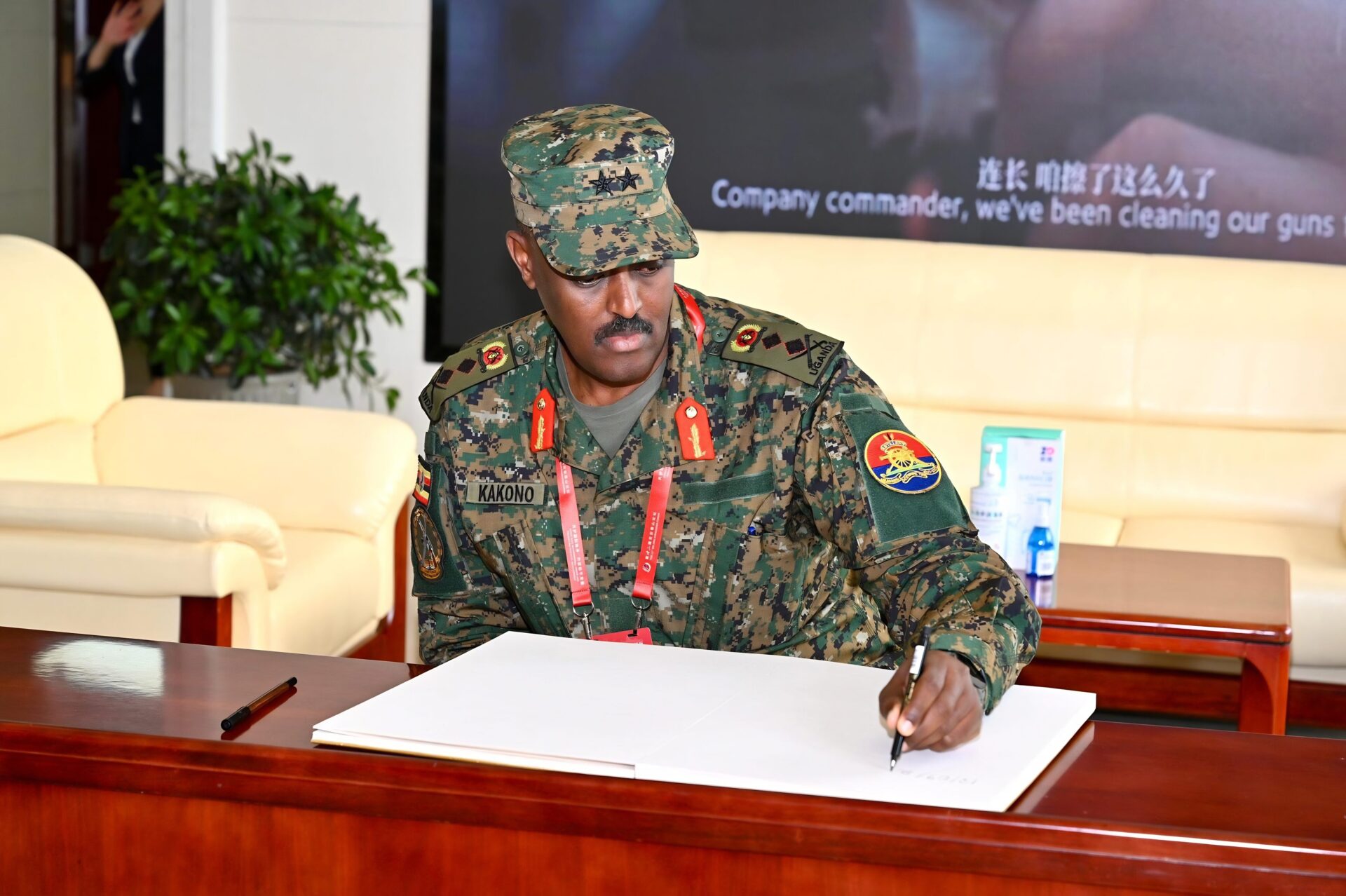 The pact signed in Beijing is the opposite. It is vertical, elite-to-elite, and built on the common interest of staying on top. It is not a bridge between two peoples, but a locked door, behind which two sets of masters agree on how best to manage their respective servants.
The pact signed in Beijing is the opposite. It is vertical, elite-to-elite, and built on the common interest of staying on top. It is not a bridge between two peoples, but a locked door, behind which two sets of masters agree on how best to manage their respective servants.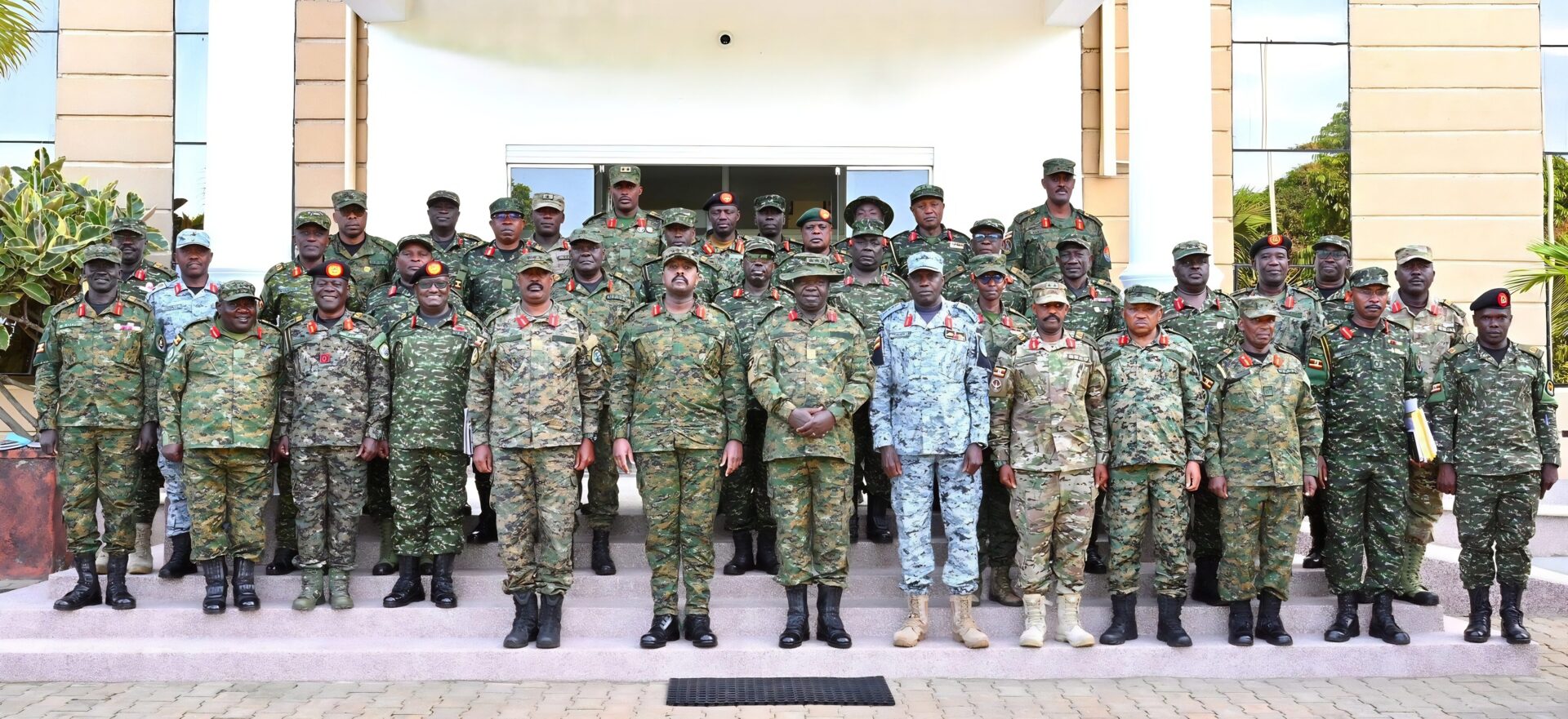 This is a process of conscious corruption, where the guardians of the nation are transformed into agents of a system that serves only itself. It operates through a series of destructive incentives:
This is a process of conscious corruption, where the guardians of the nation are transformed into agents of a system that serves only itself. It operates through a series of destructive incentives: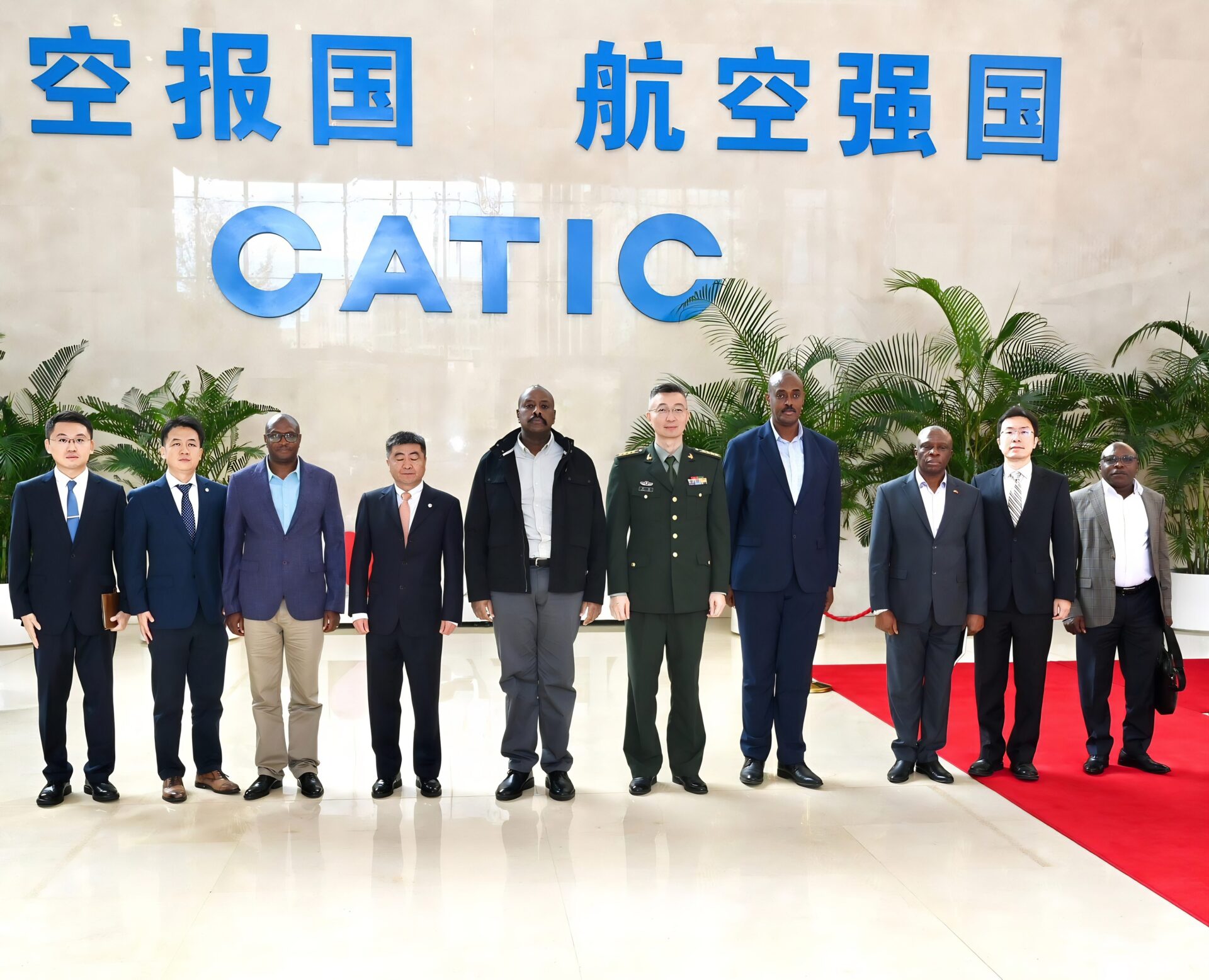 This symbolism is not an empty gesture. It is a clear signal of intent and ideology, with profound consequences for how security is defined and enforced.
This symbolism is not an empty gesture. It is a clear signal of intent and ideology, with profound consequences for how security is defined and enforced.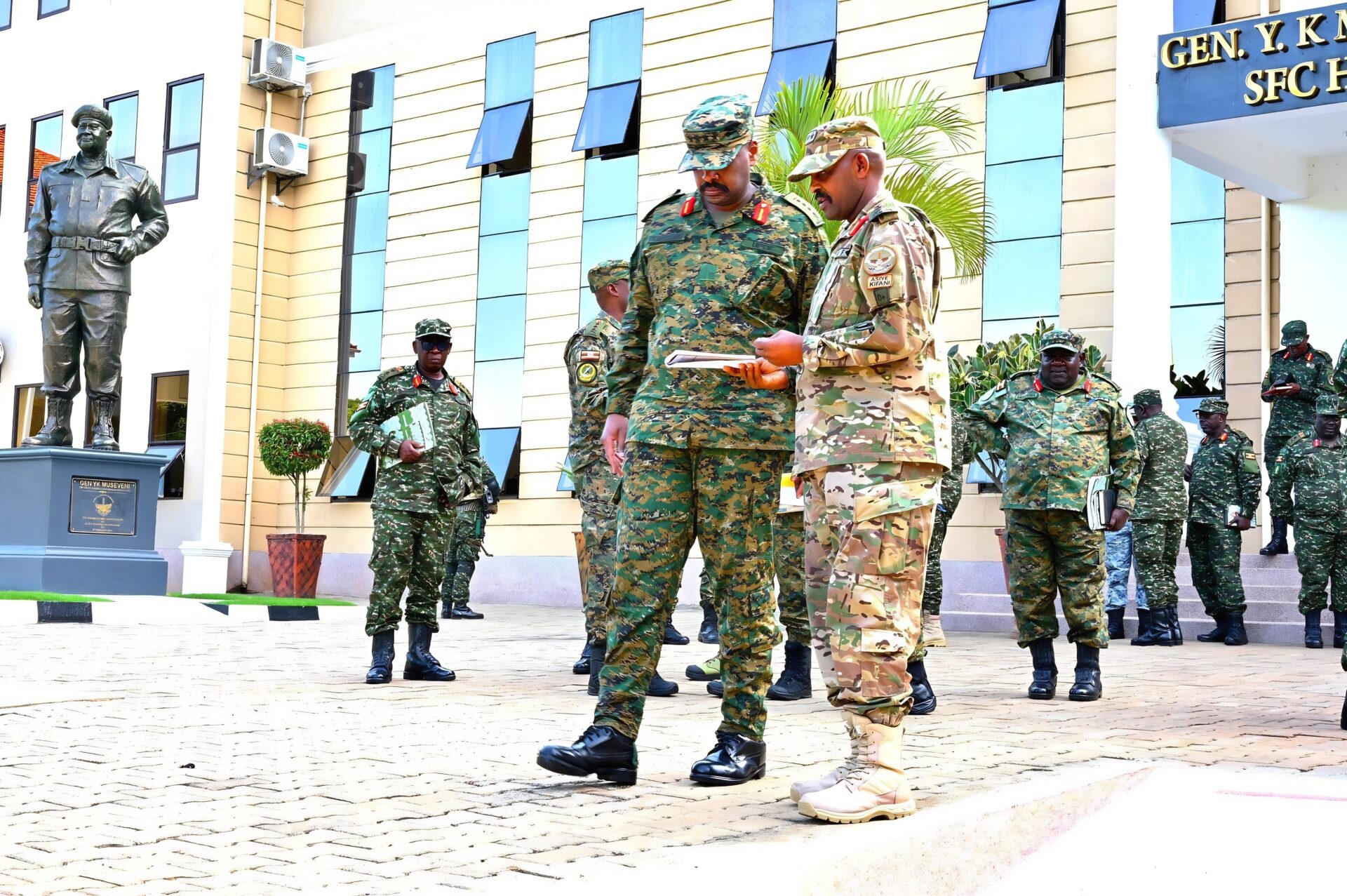 The silencing of dissent is not a sign of a state’s strength; it is the deepest proof of its weakness and insecurity. A powerful state, confident in its relationship with its people, has no need to silence them. It is only the brittle, illegitimate state that must resort to branding its own citizens as threats. The new capabilities from this pact are not shields to protect the people; they are needles intended to pop the balloons of dissent before they can ever rise into the sky. They are not building a safer nation; they are building a quieter one, where the only sound allowed is the echo of the state’s own voice.
The silencing of dissent is not a sign of a state’s strength; it is the deepest proof of its weakness and insecurity. A powerful state, confident in its relationship with its people, has no need to silence them. It is only the brittle, illegitimate state that must resort to branding its own citizens as threats. The new capabilities from this pact are not shields to protect the people; they are needles intended to pop the balloons of dissent before they can ever rise into the sky. They are not building a safer nation; they are building a quieter one, where the only sound allowed is the echo of the state’s own voice.
